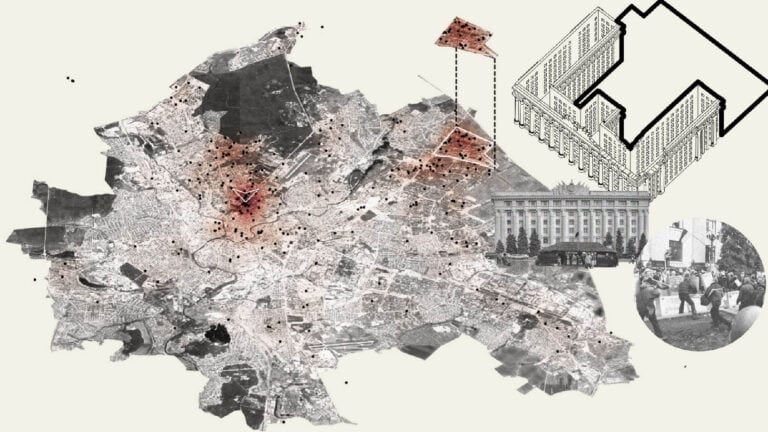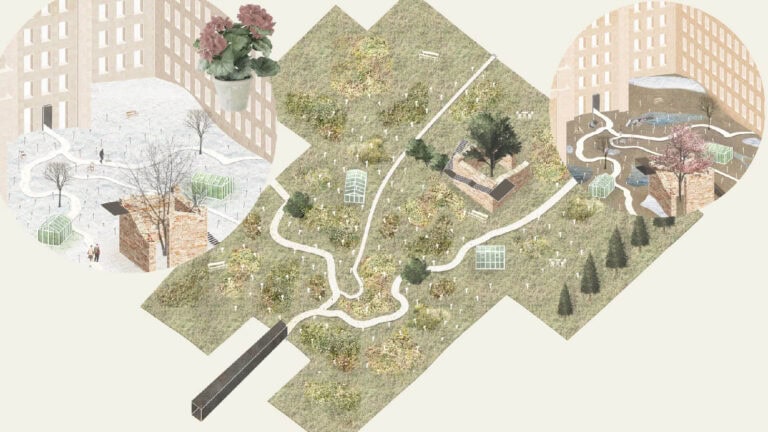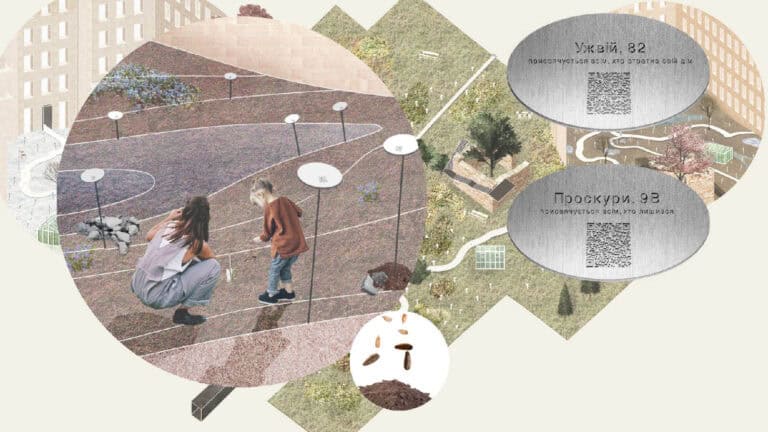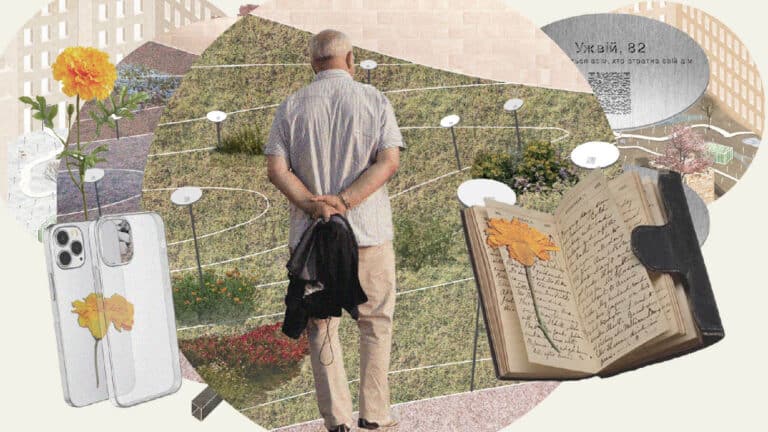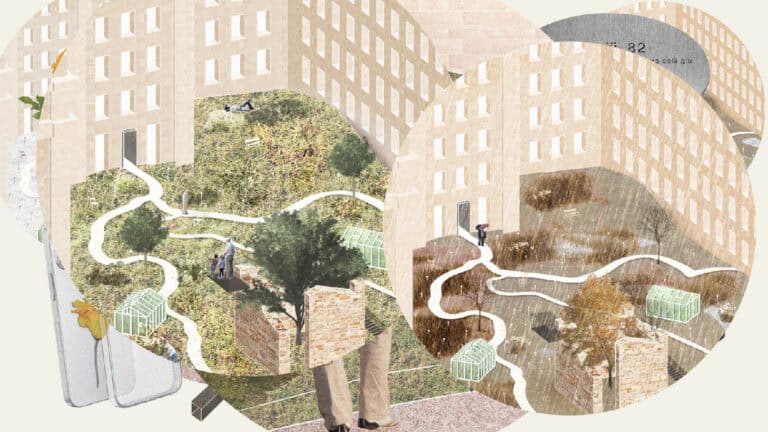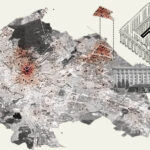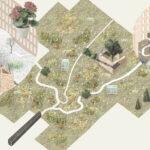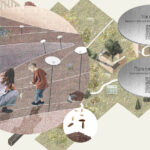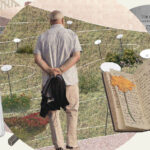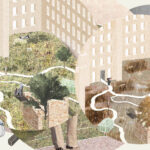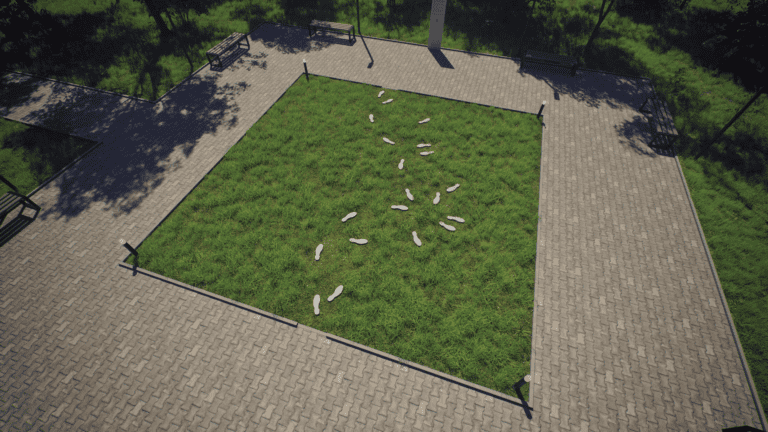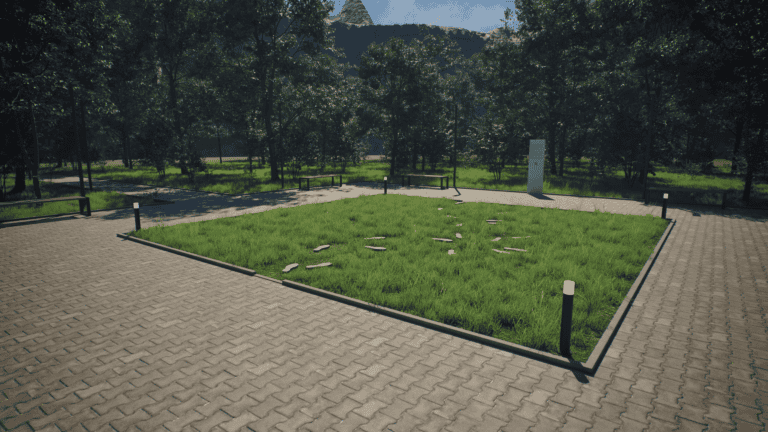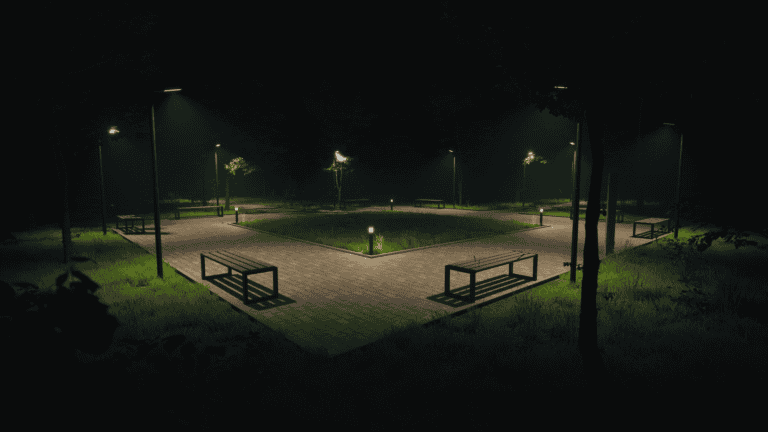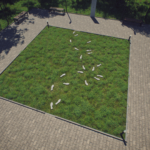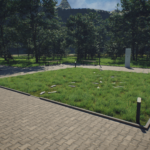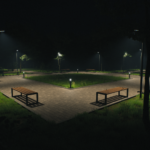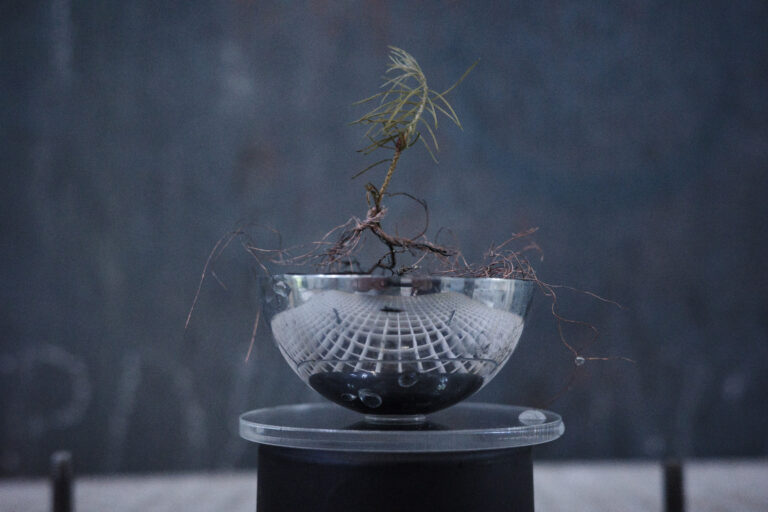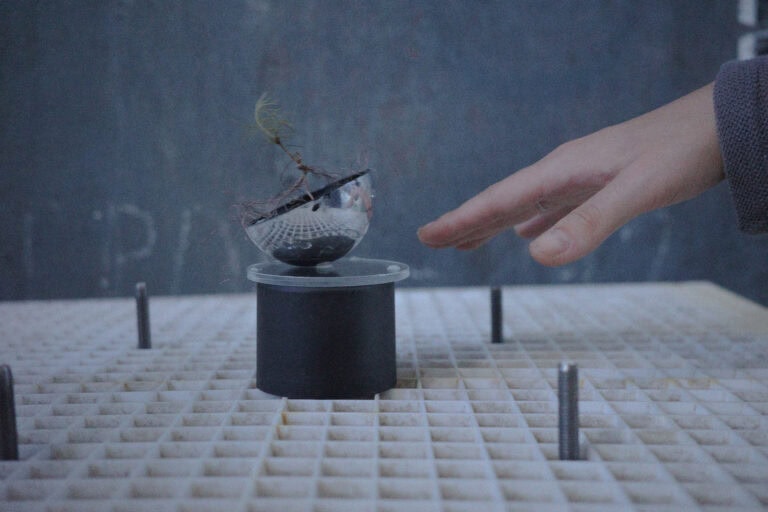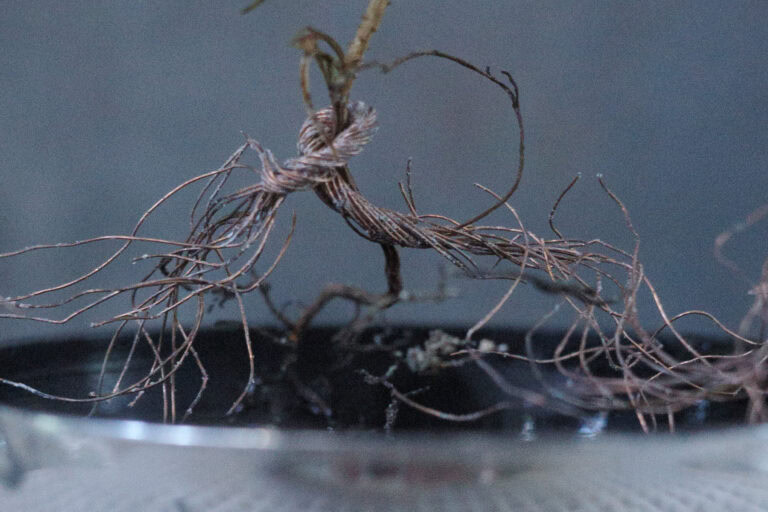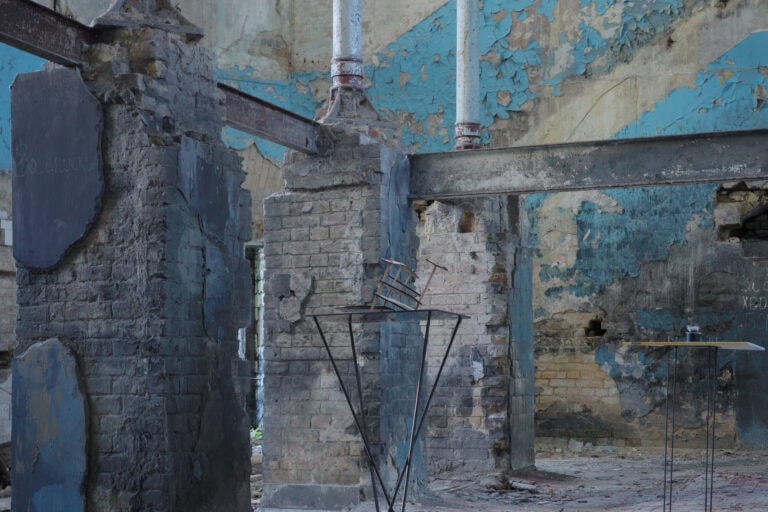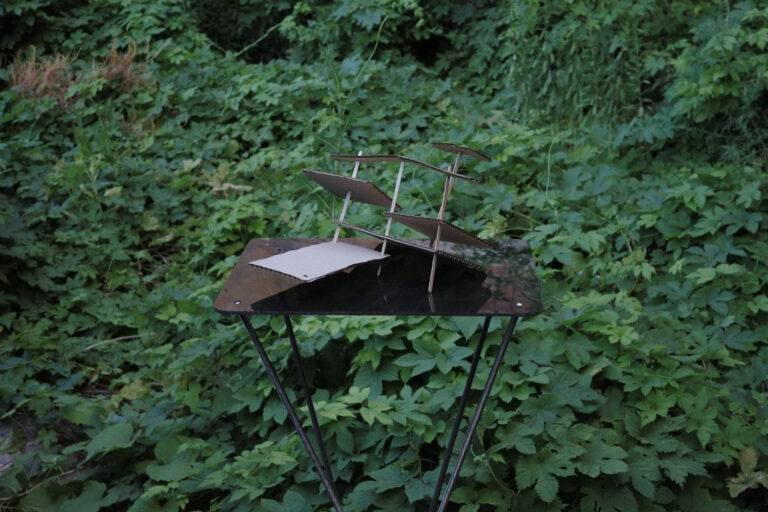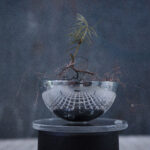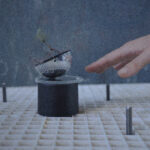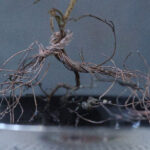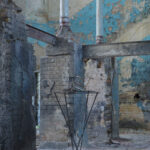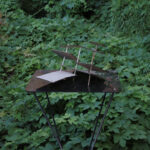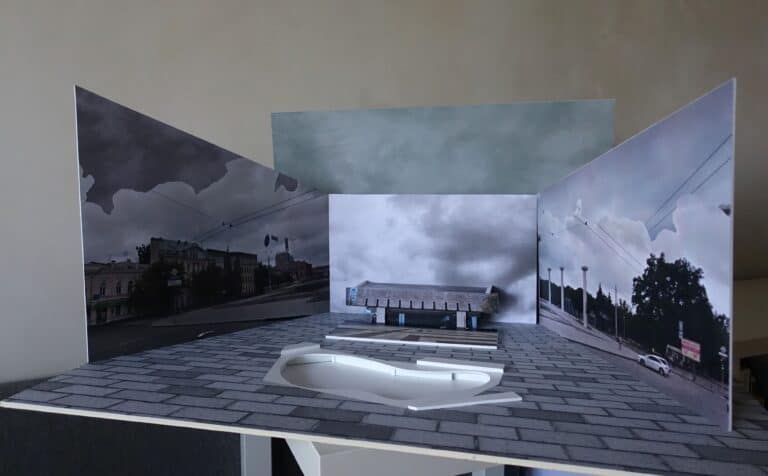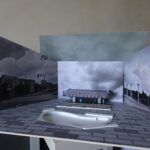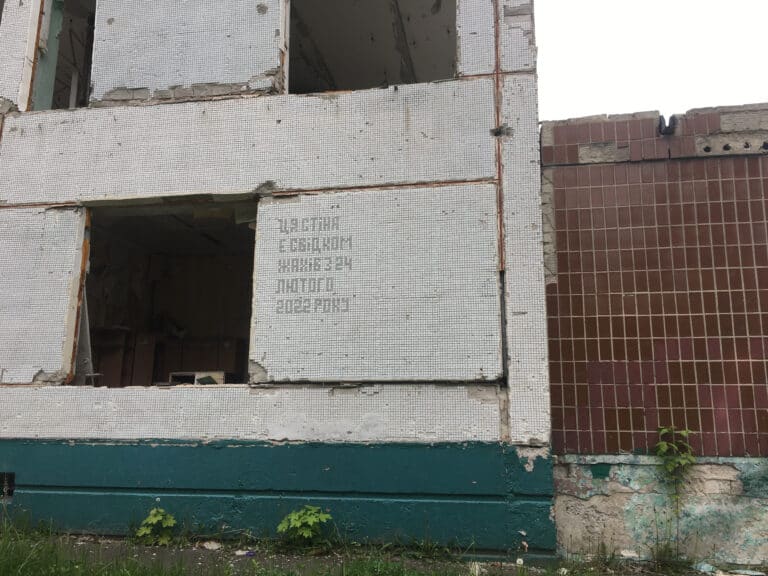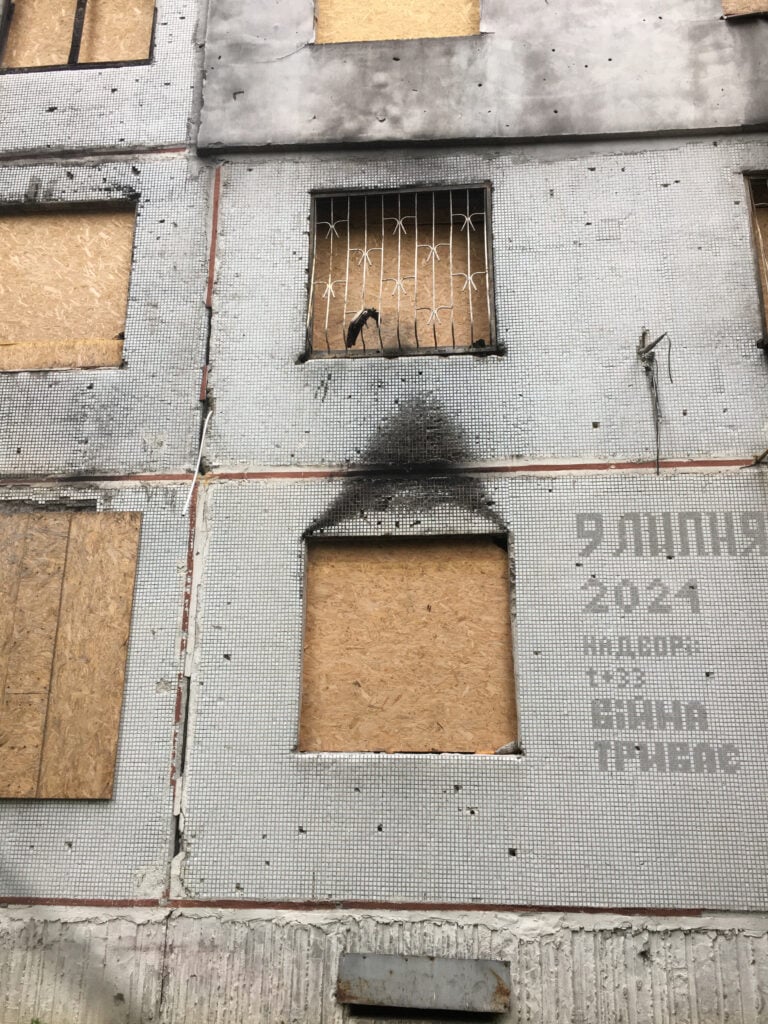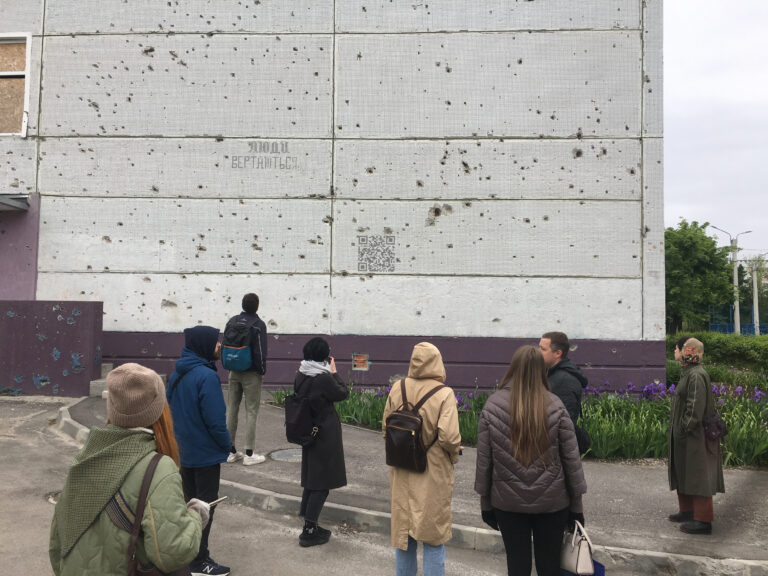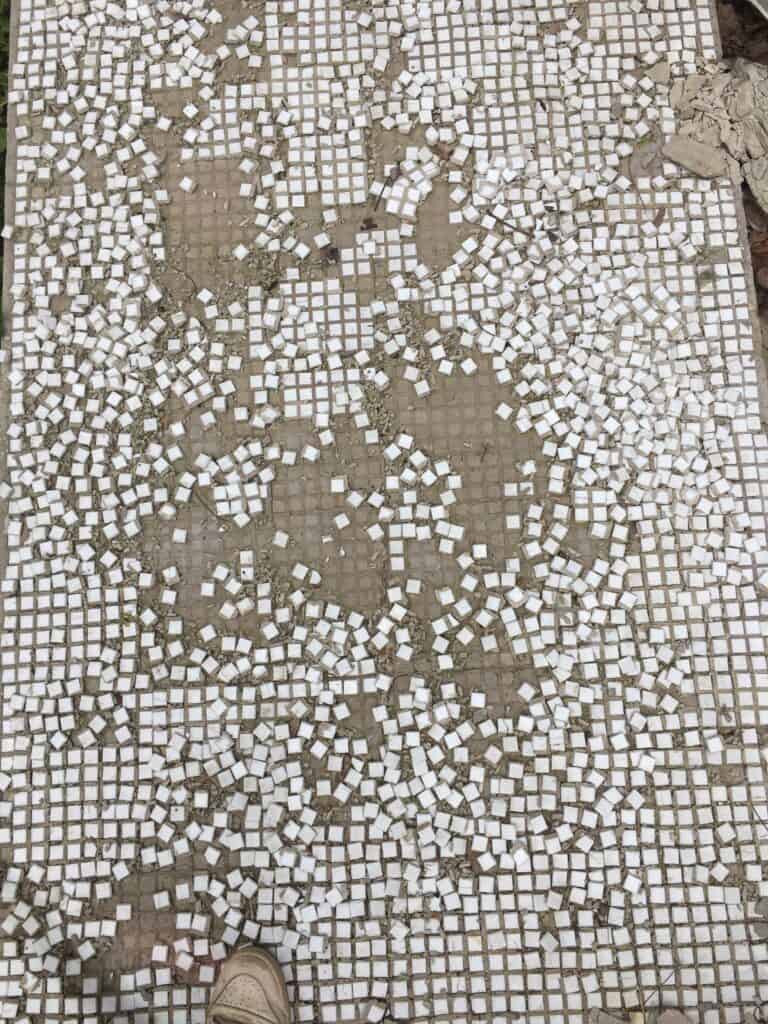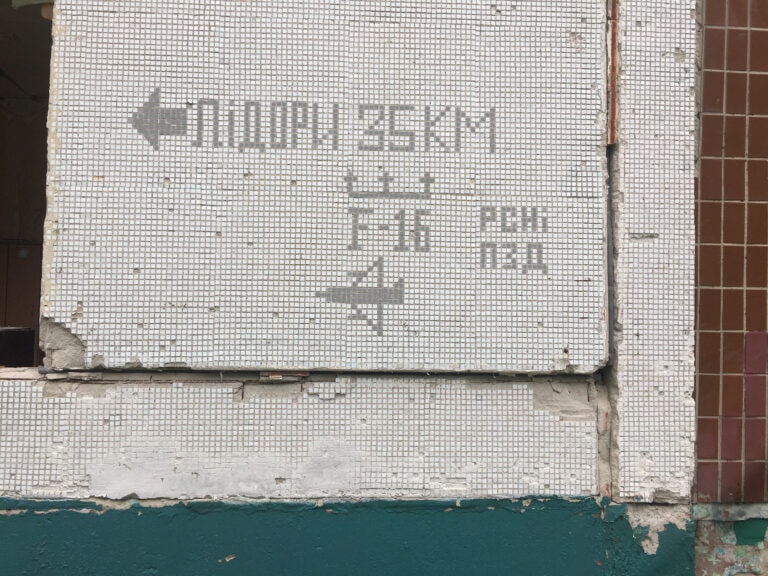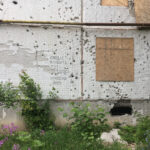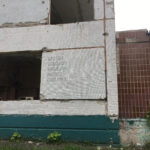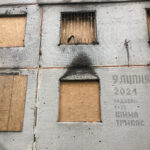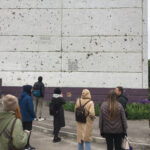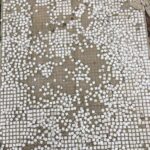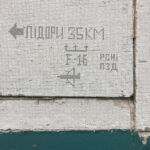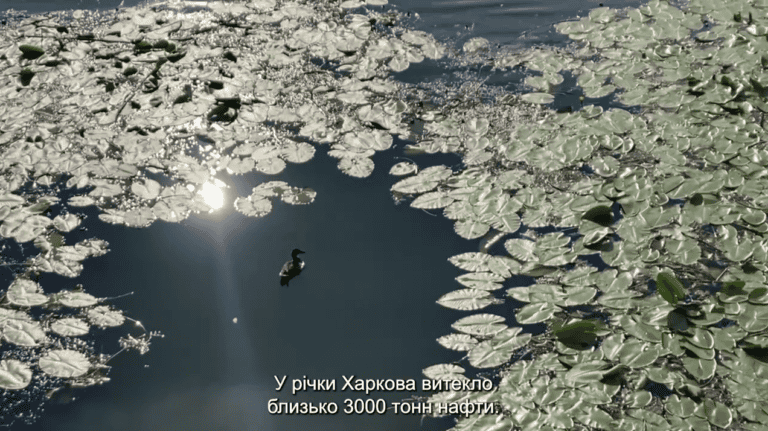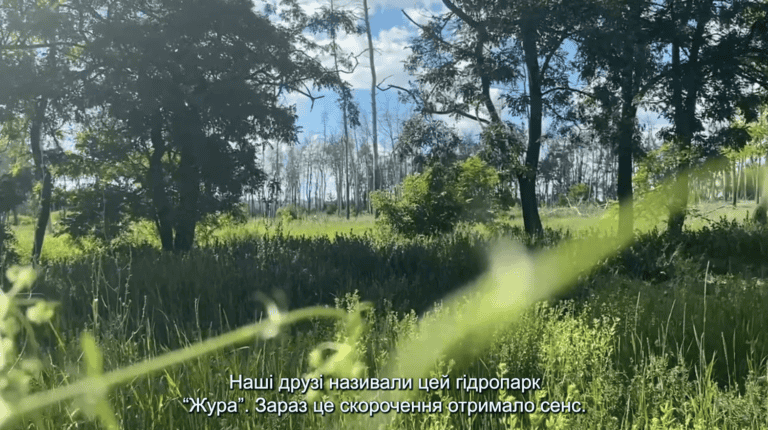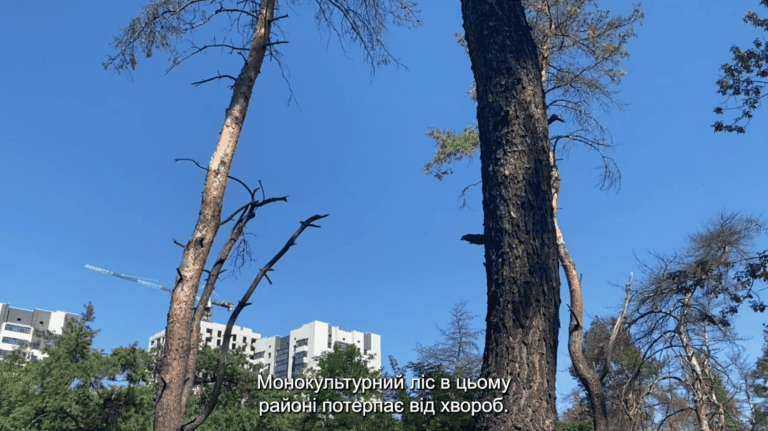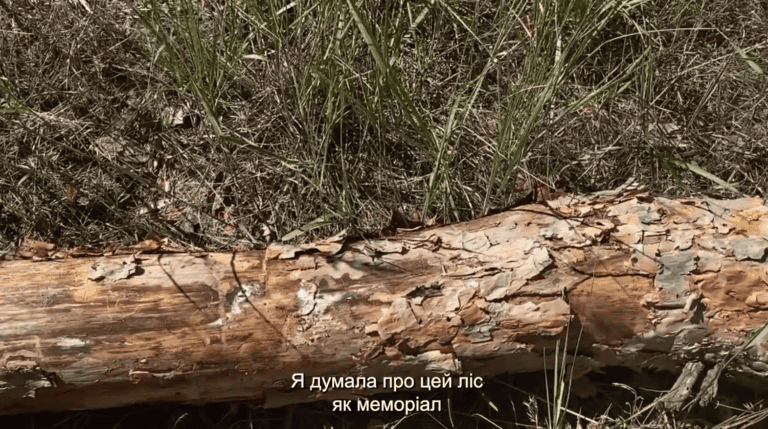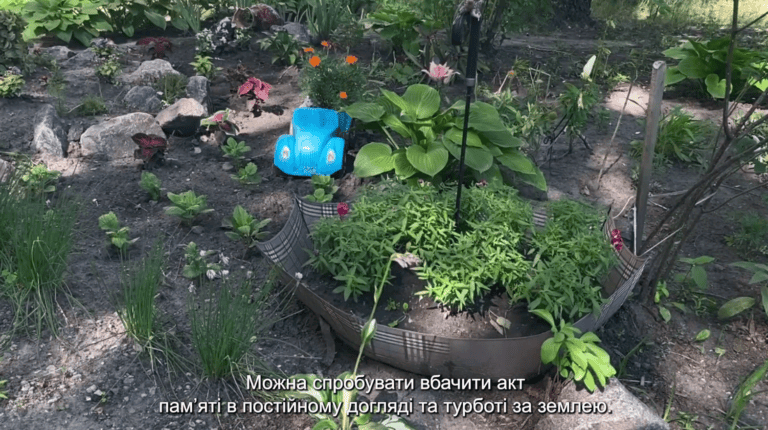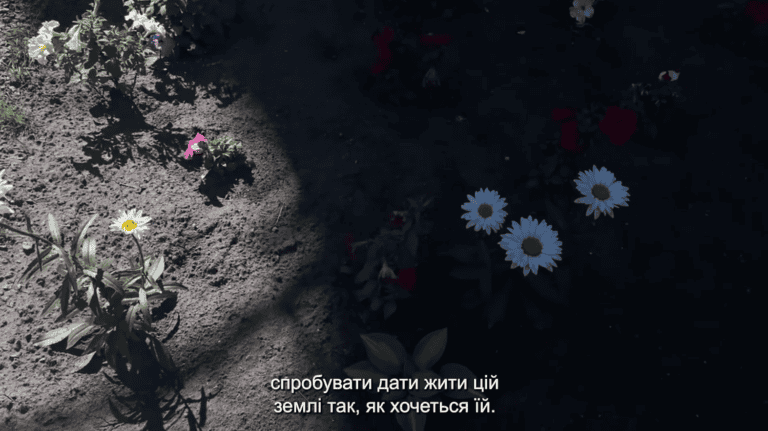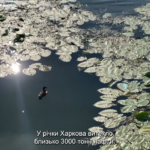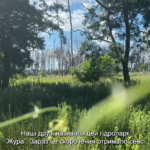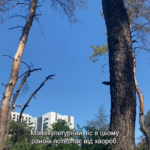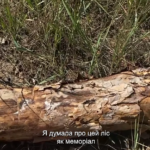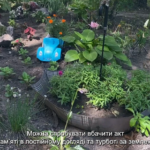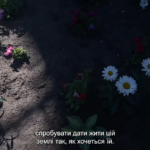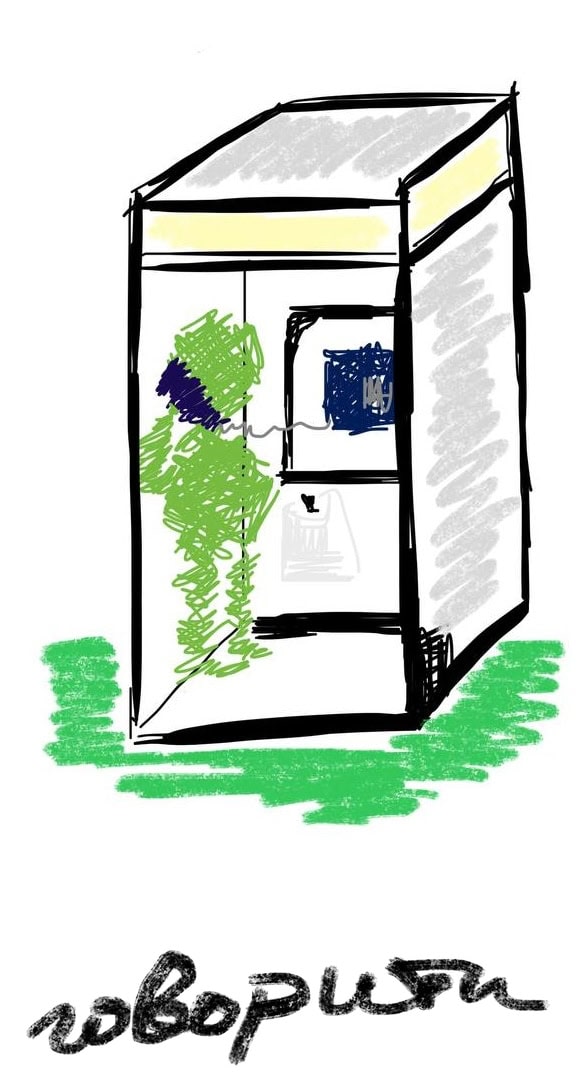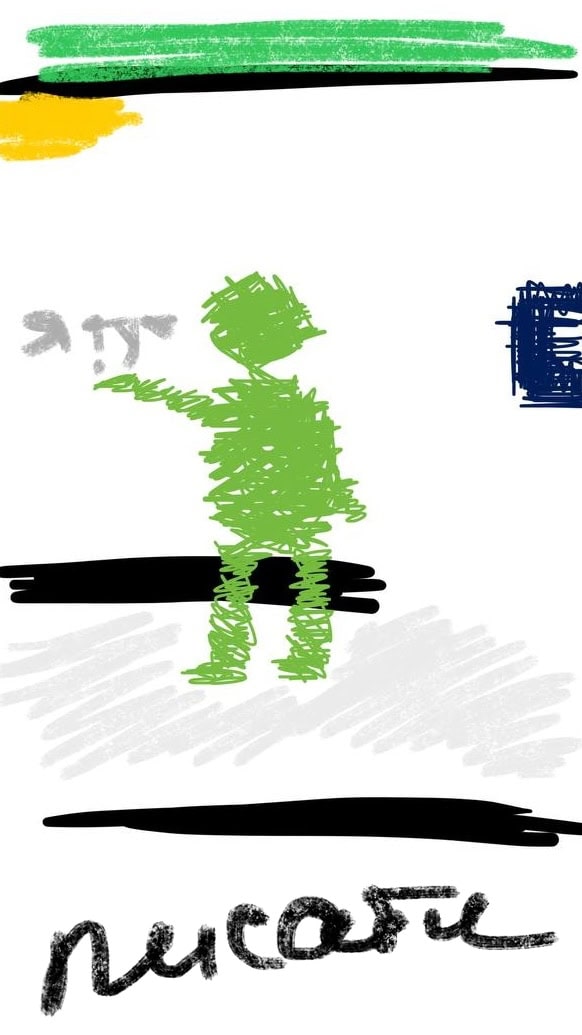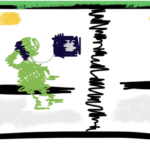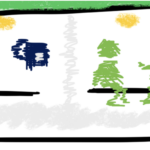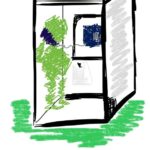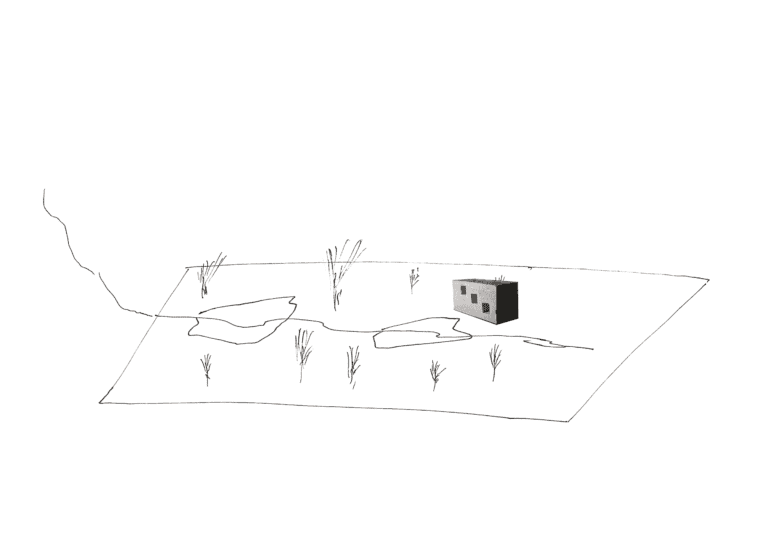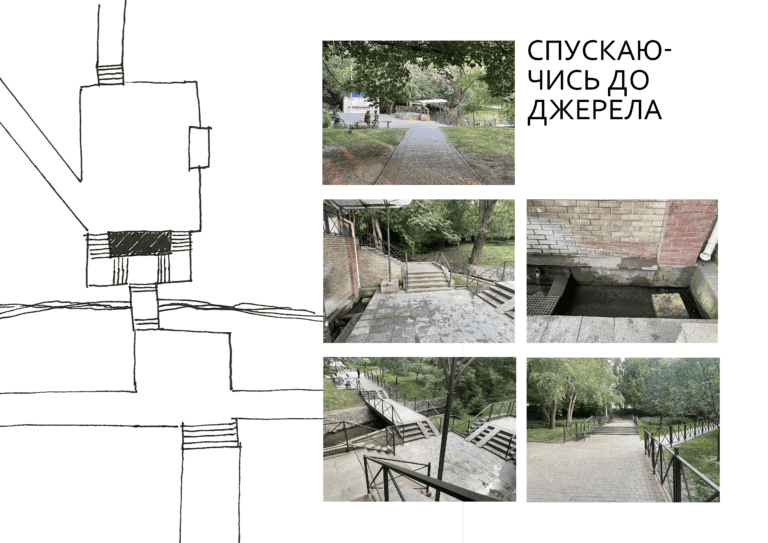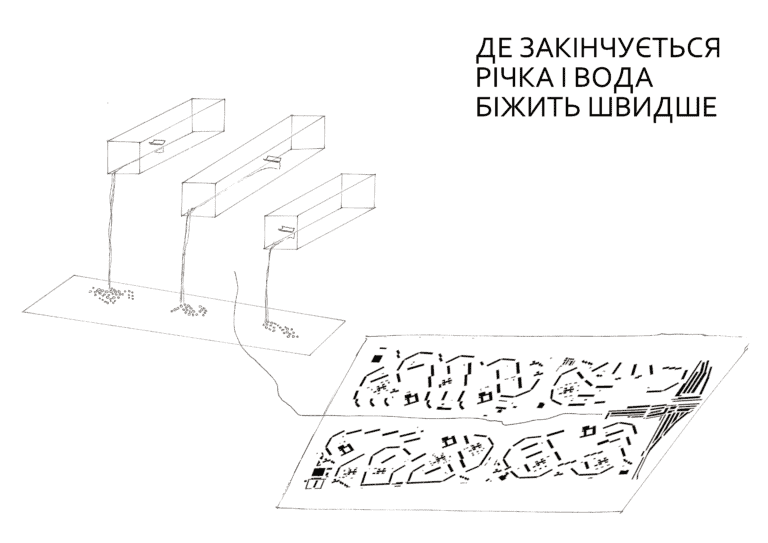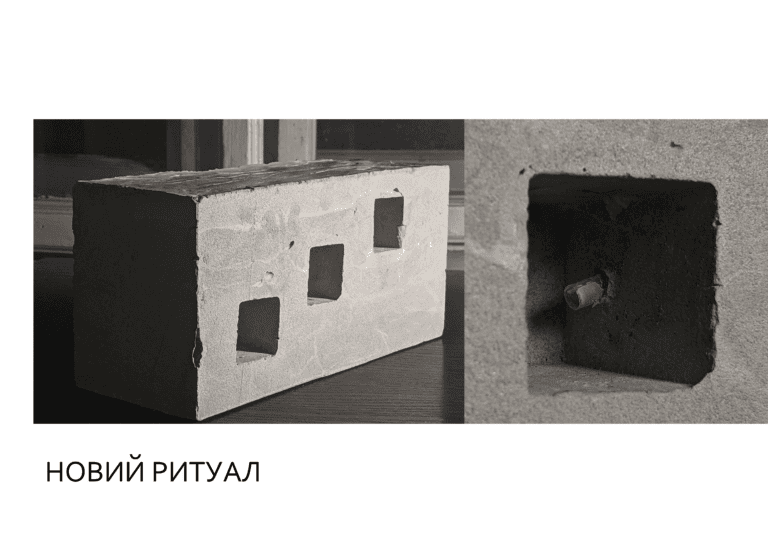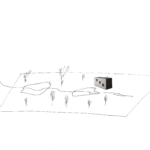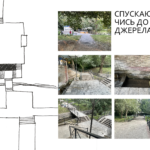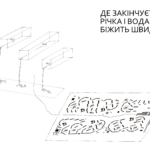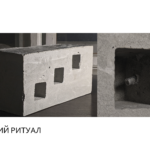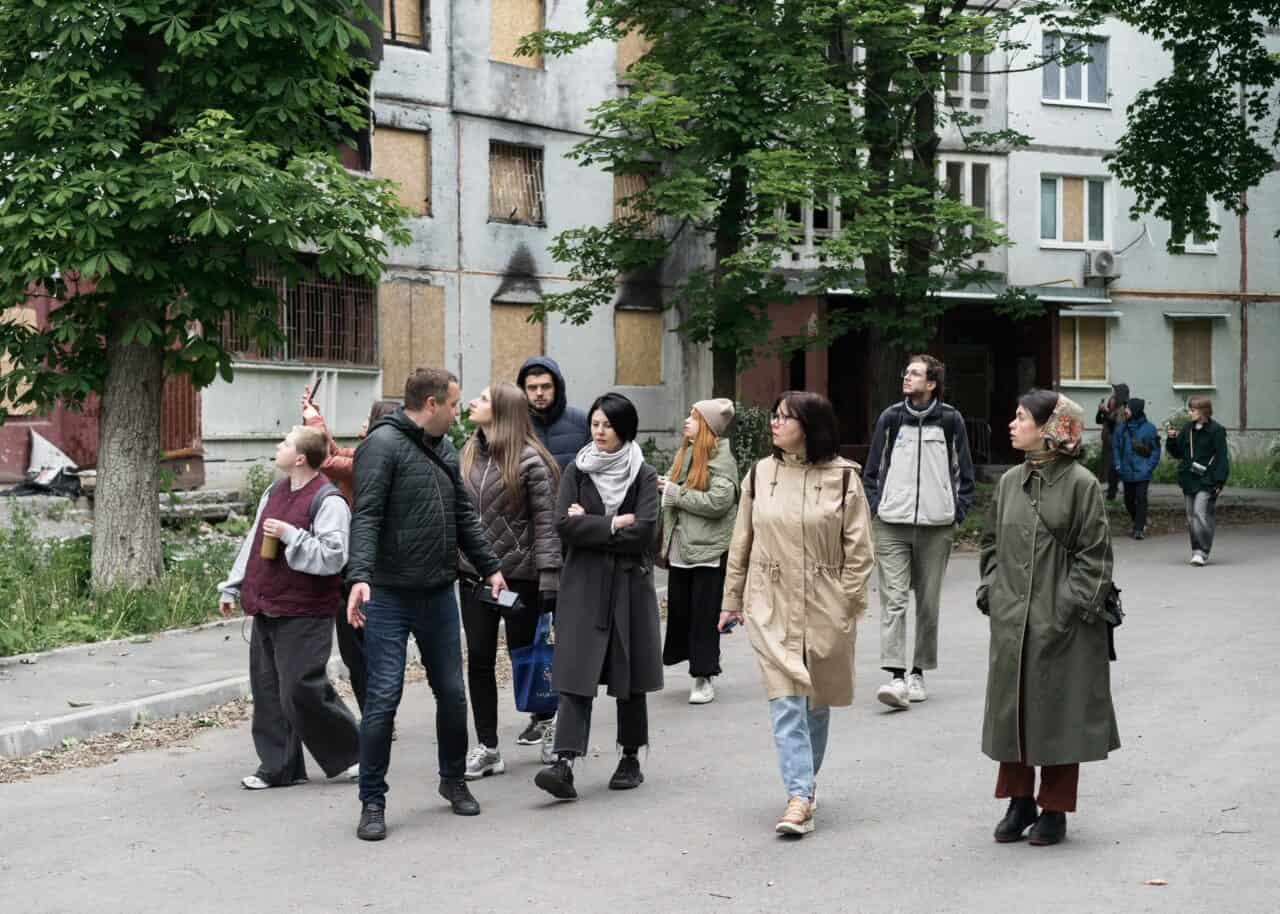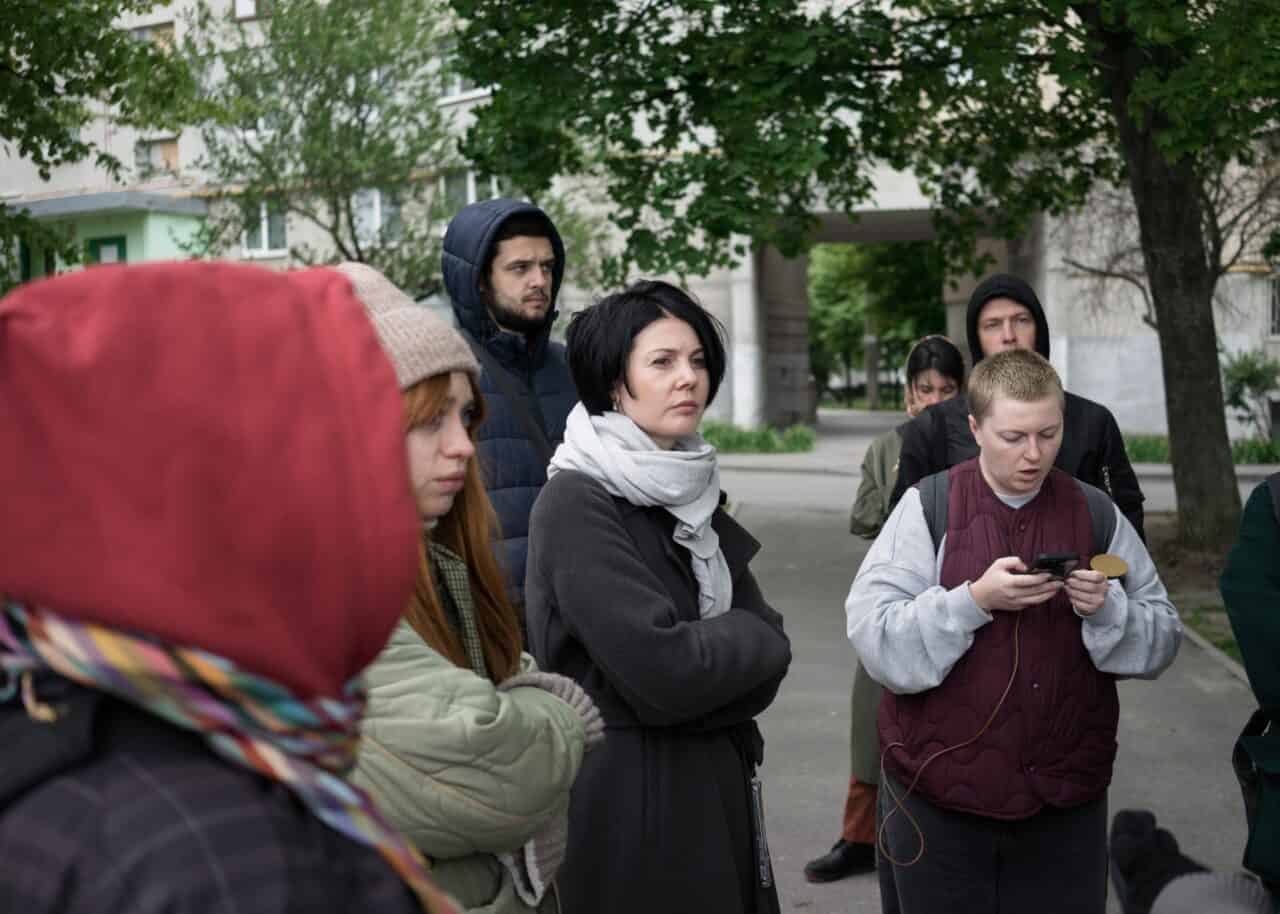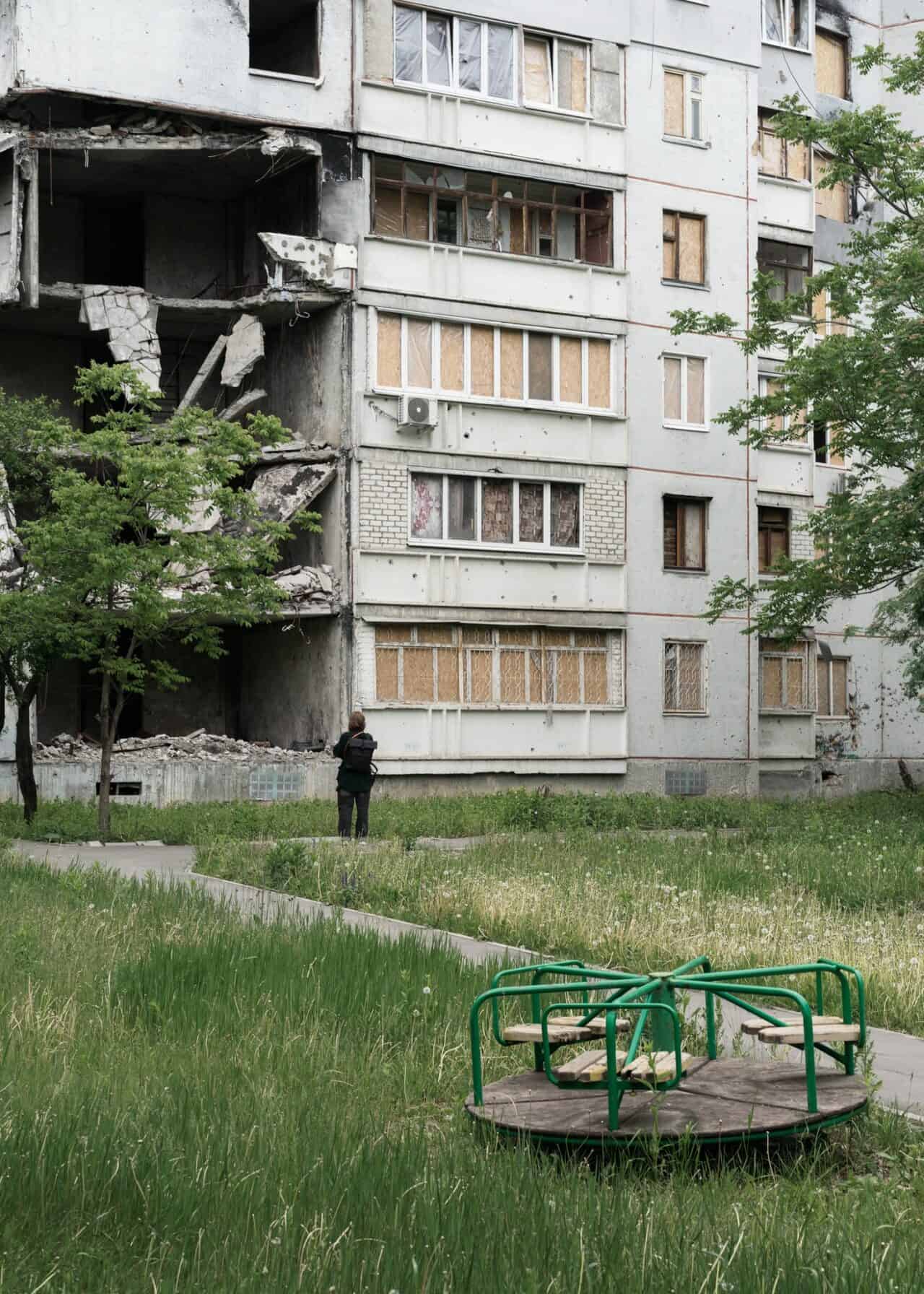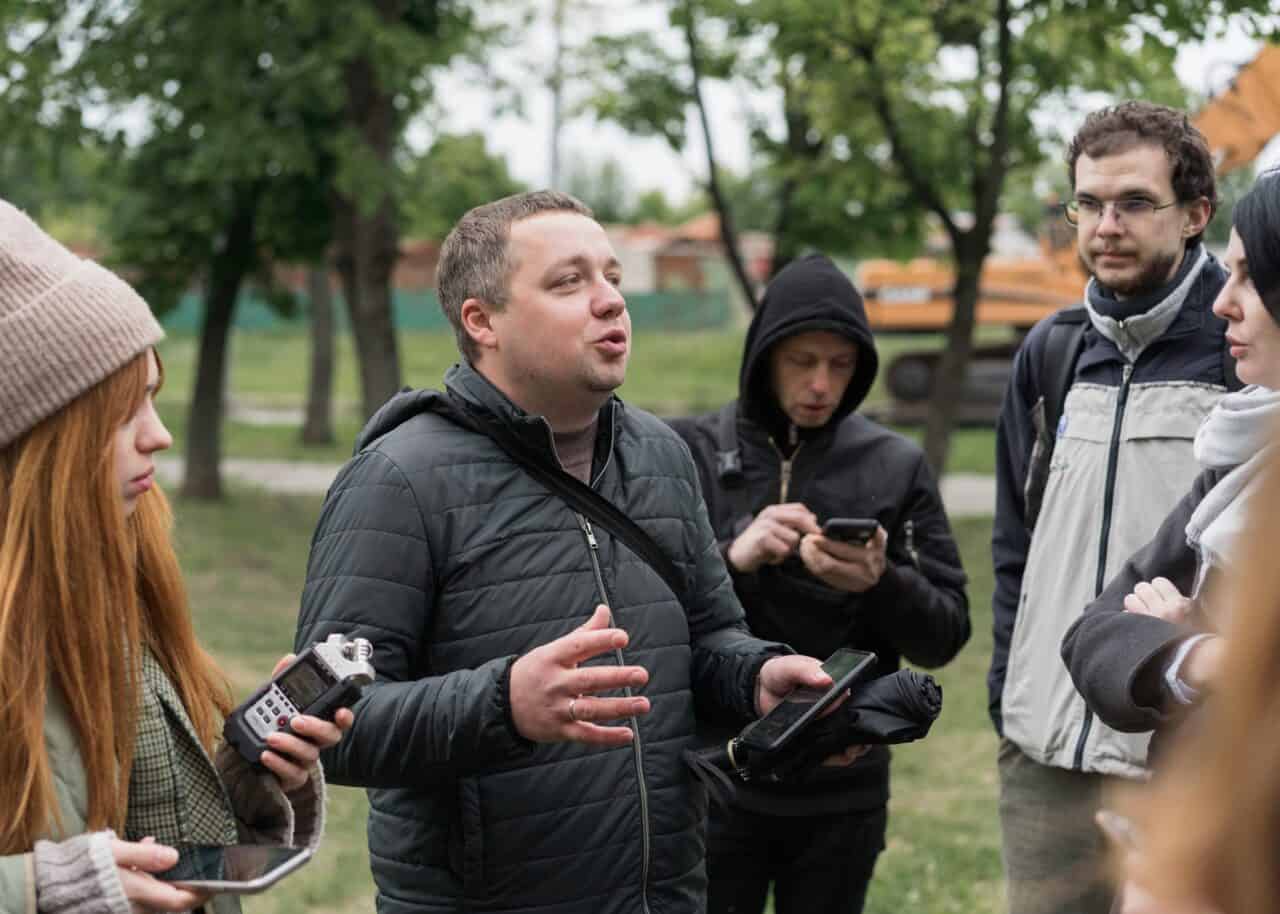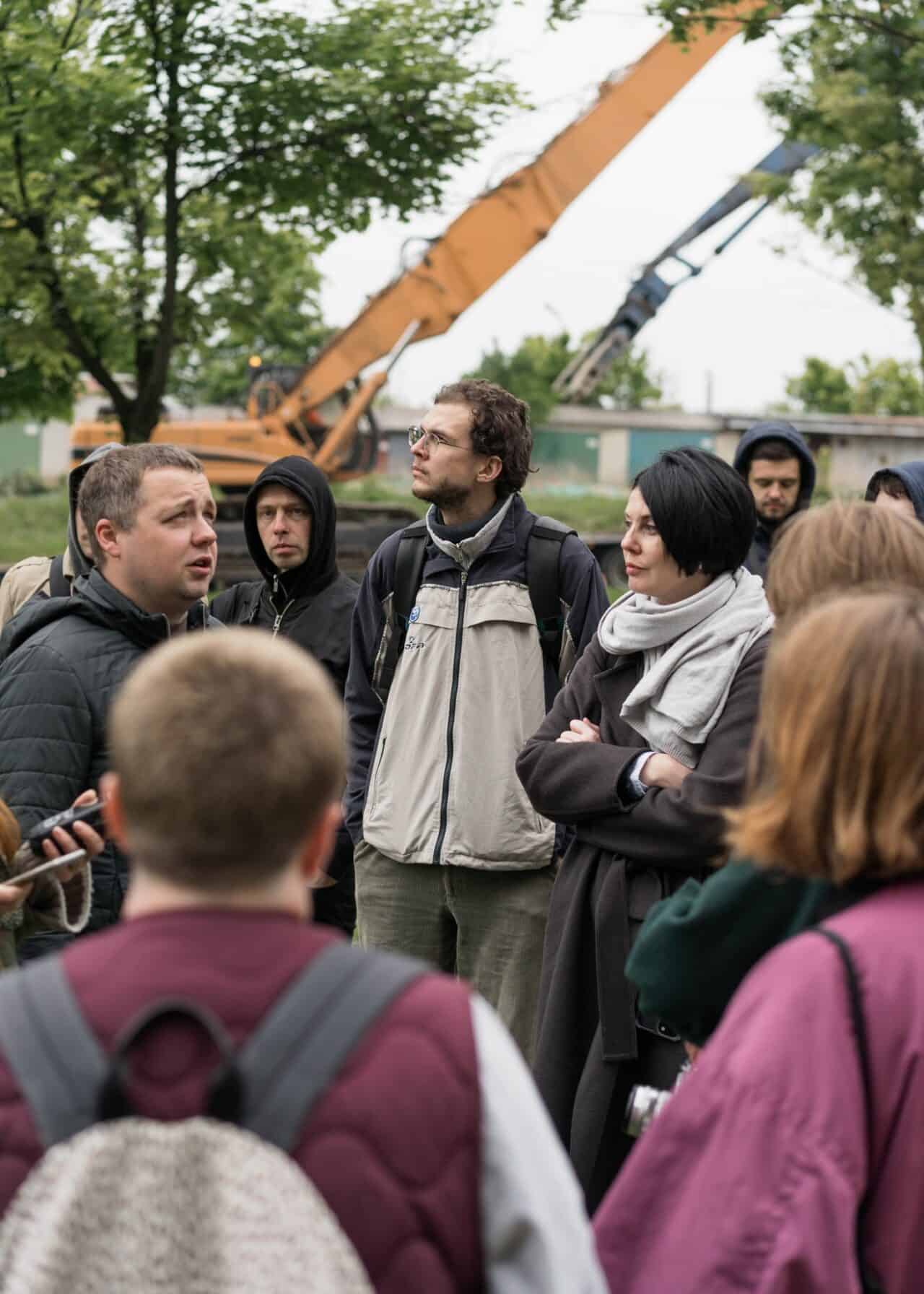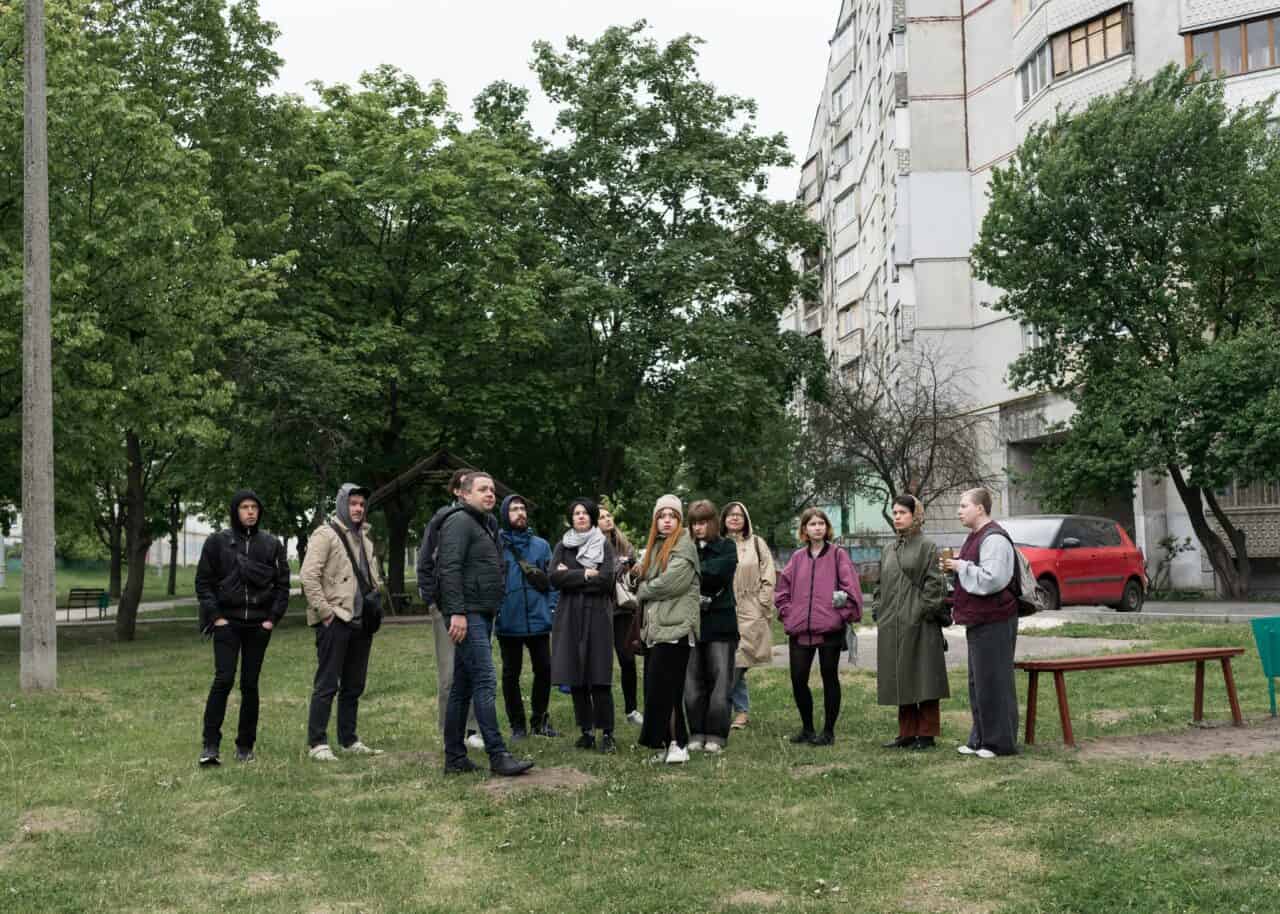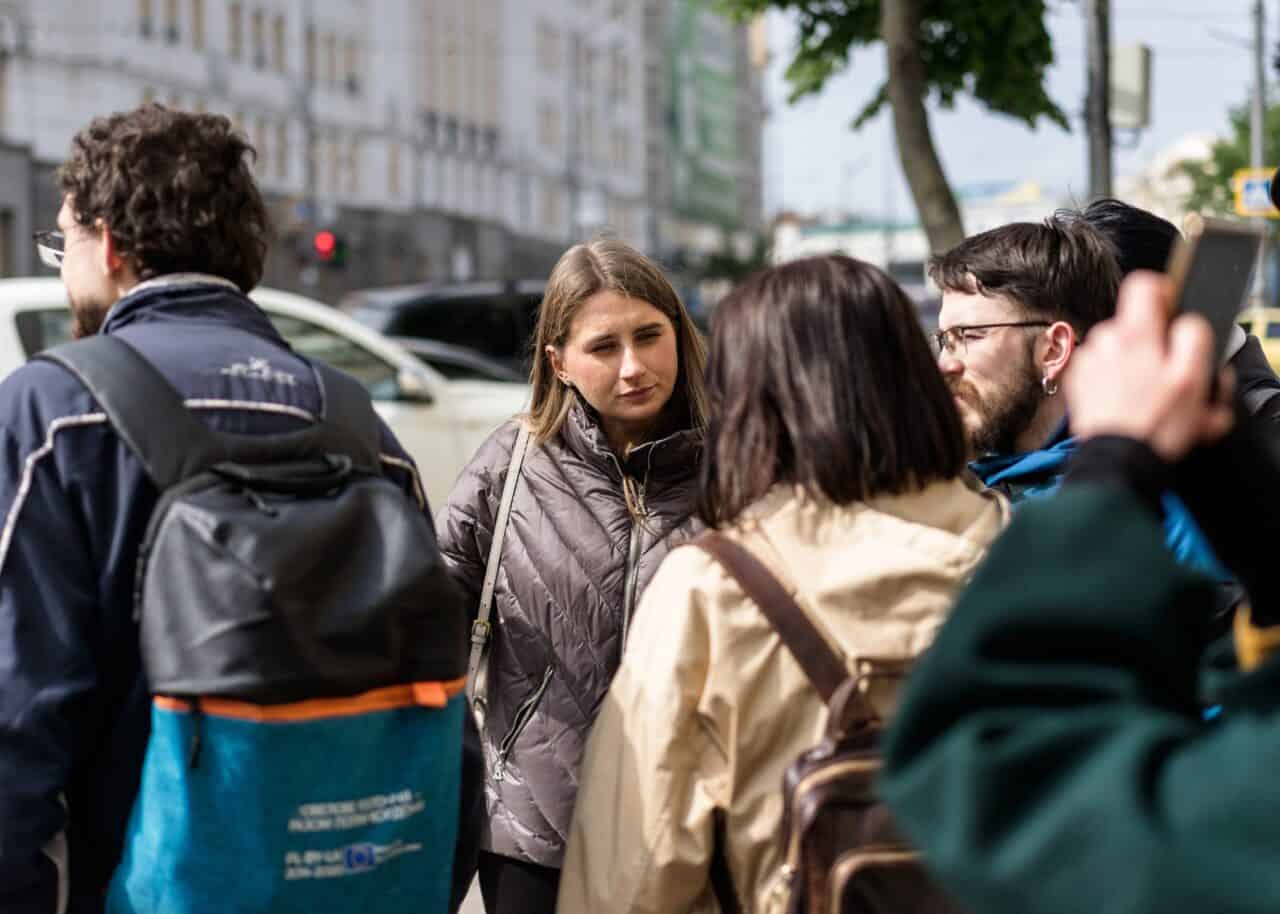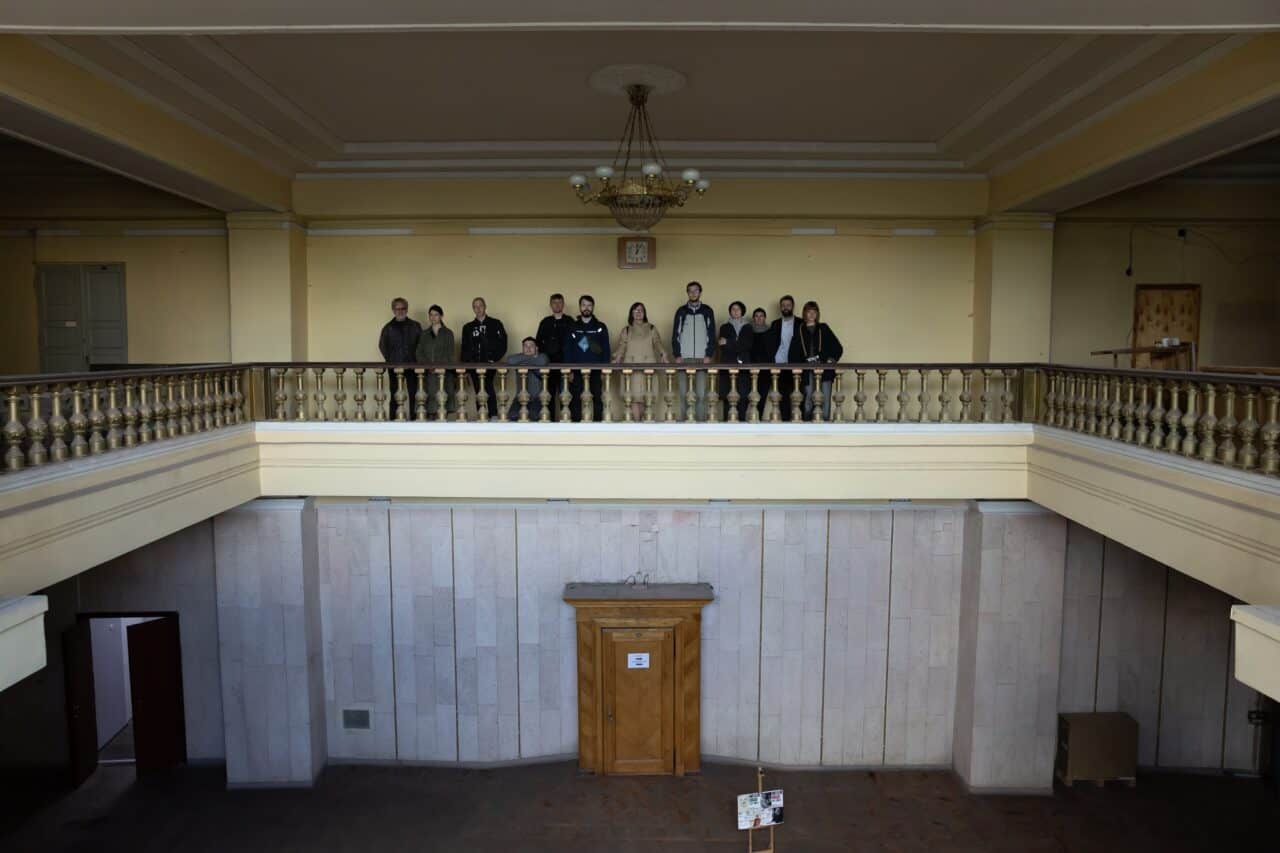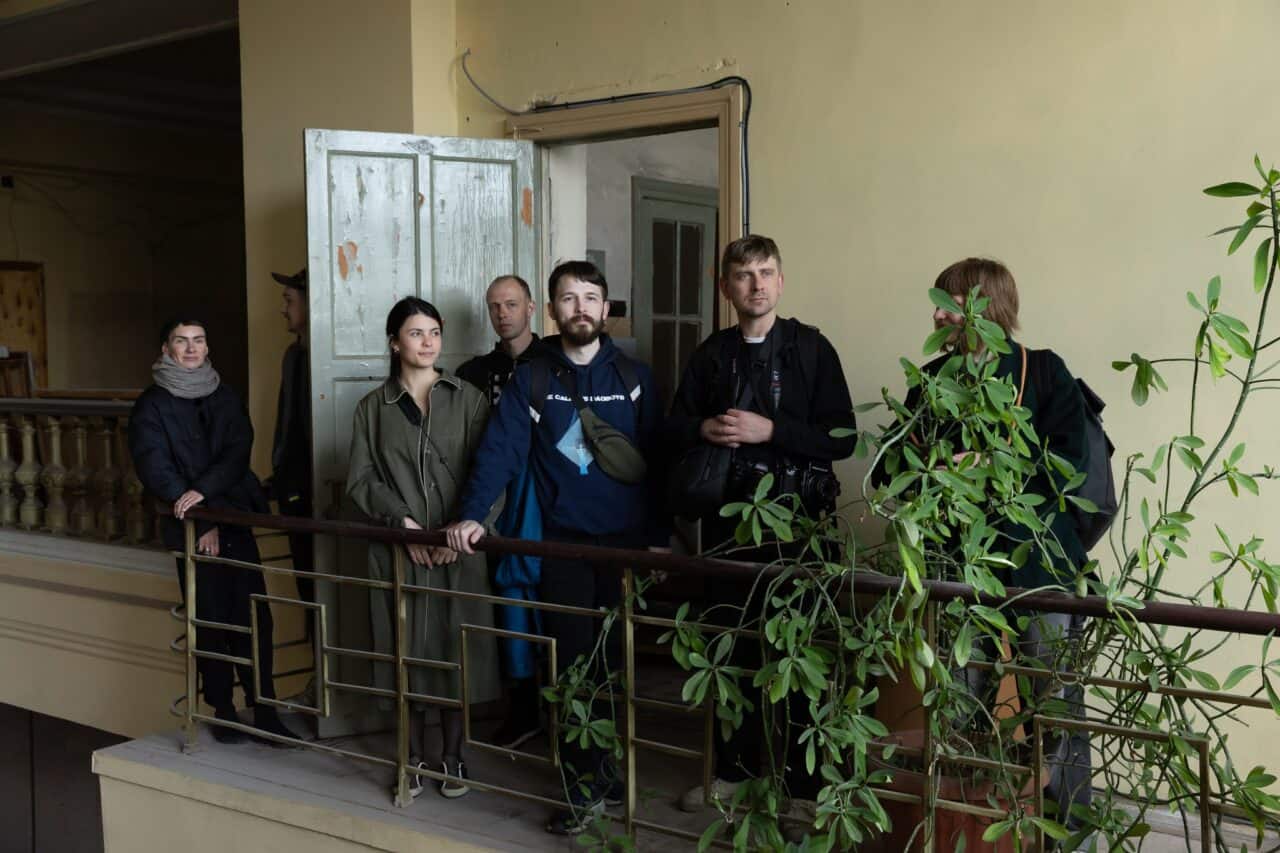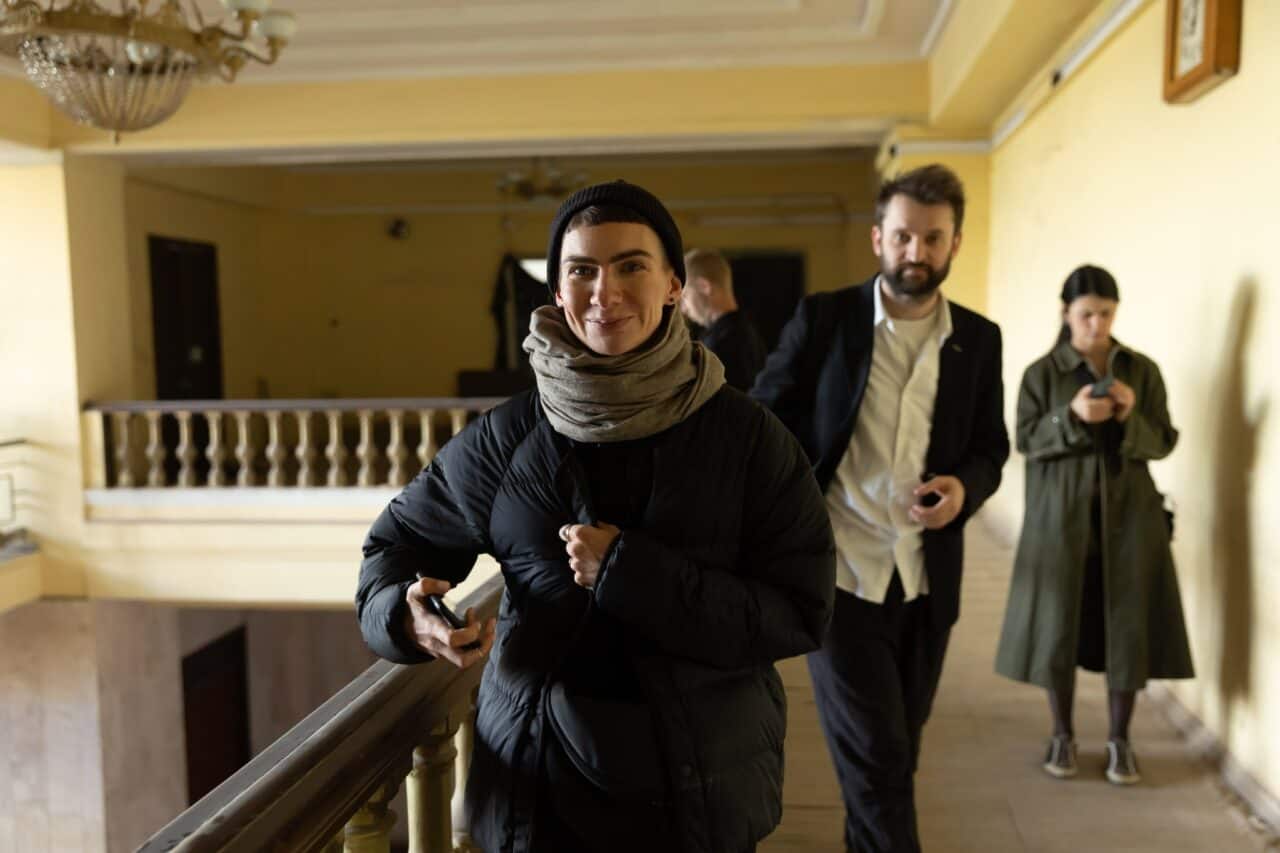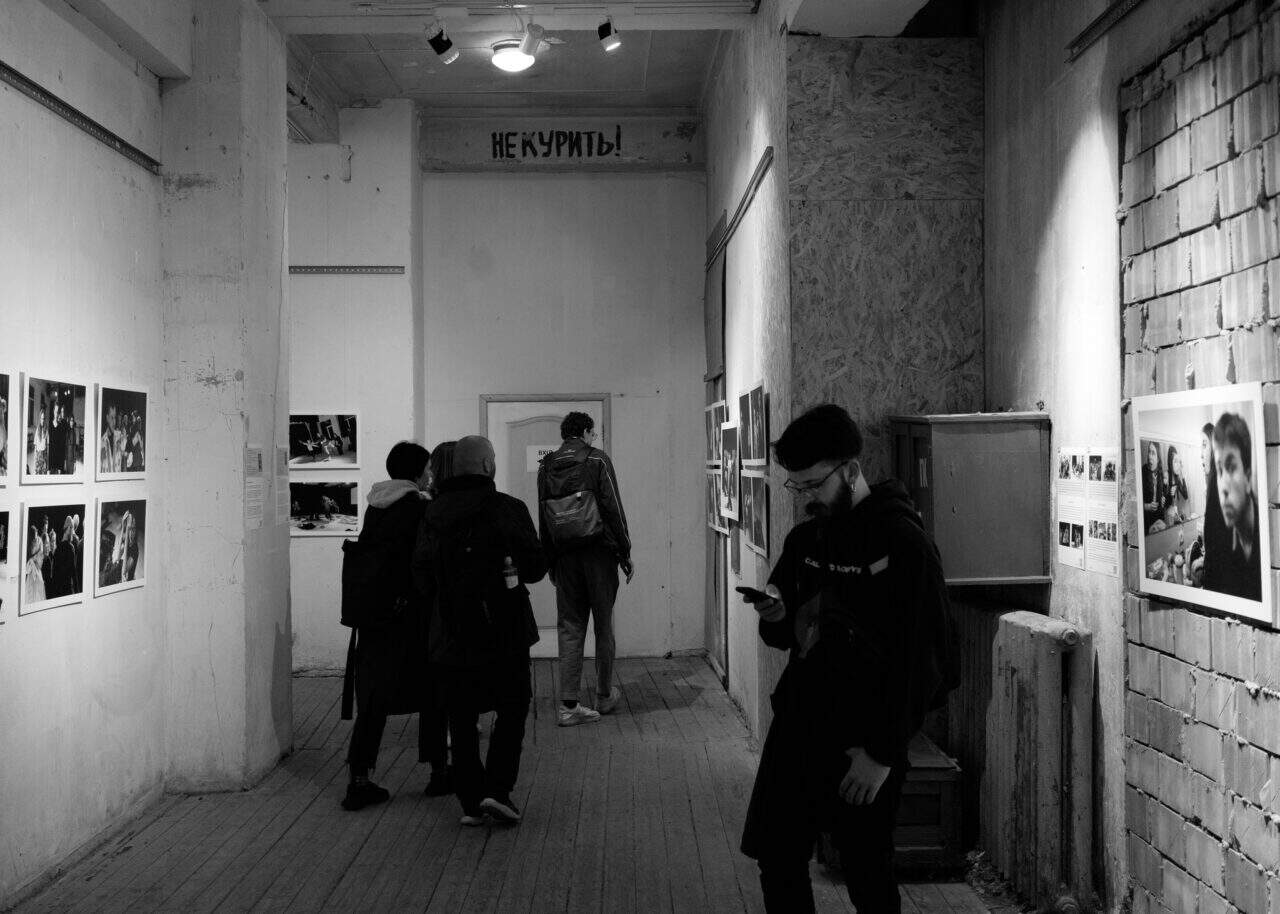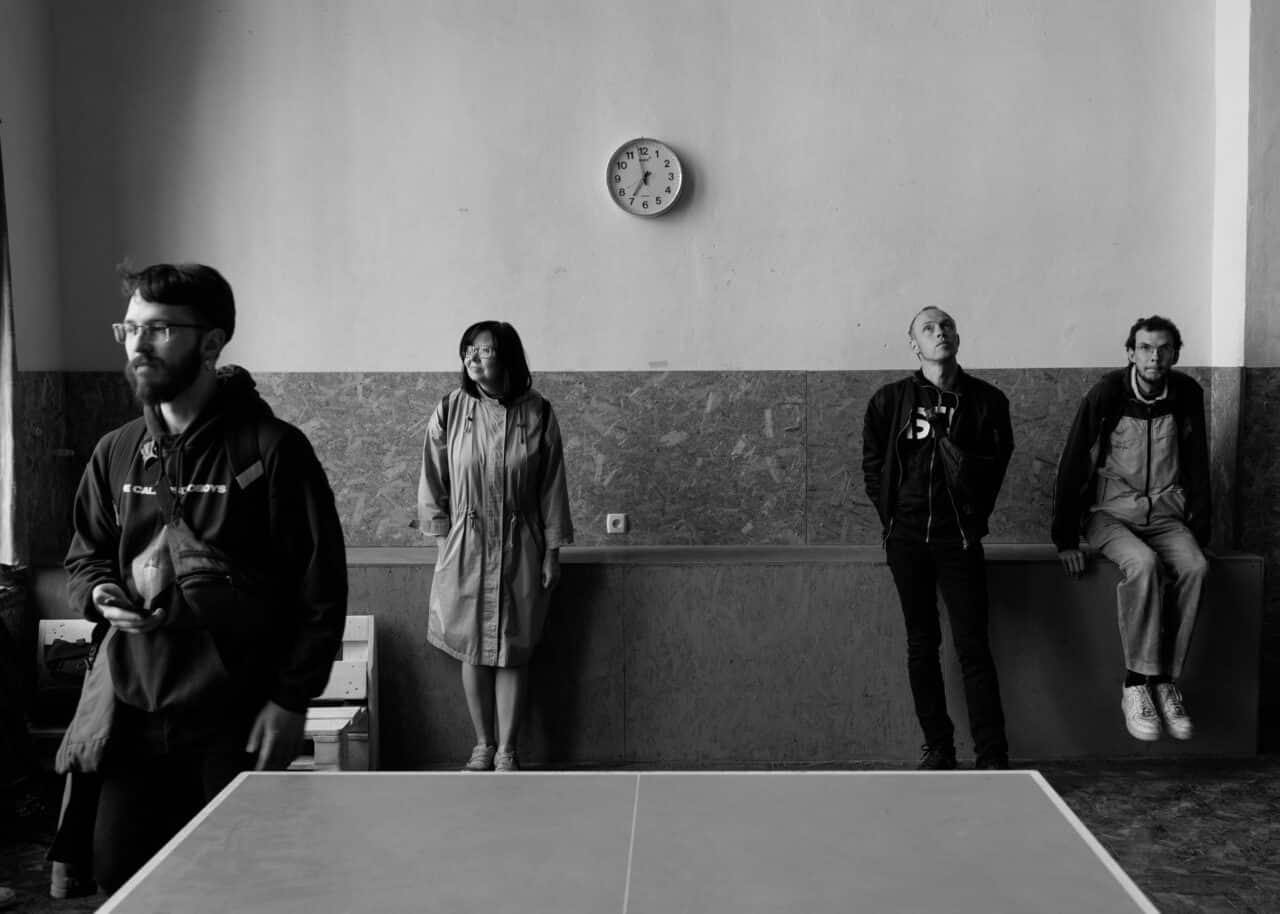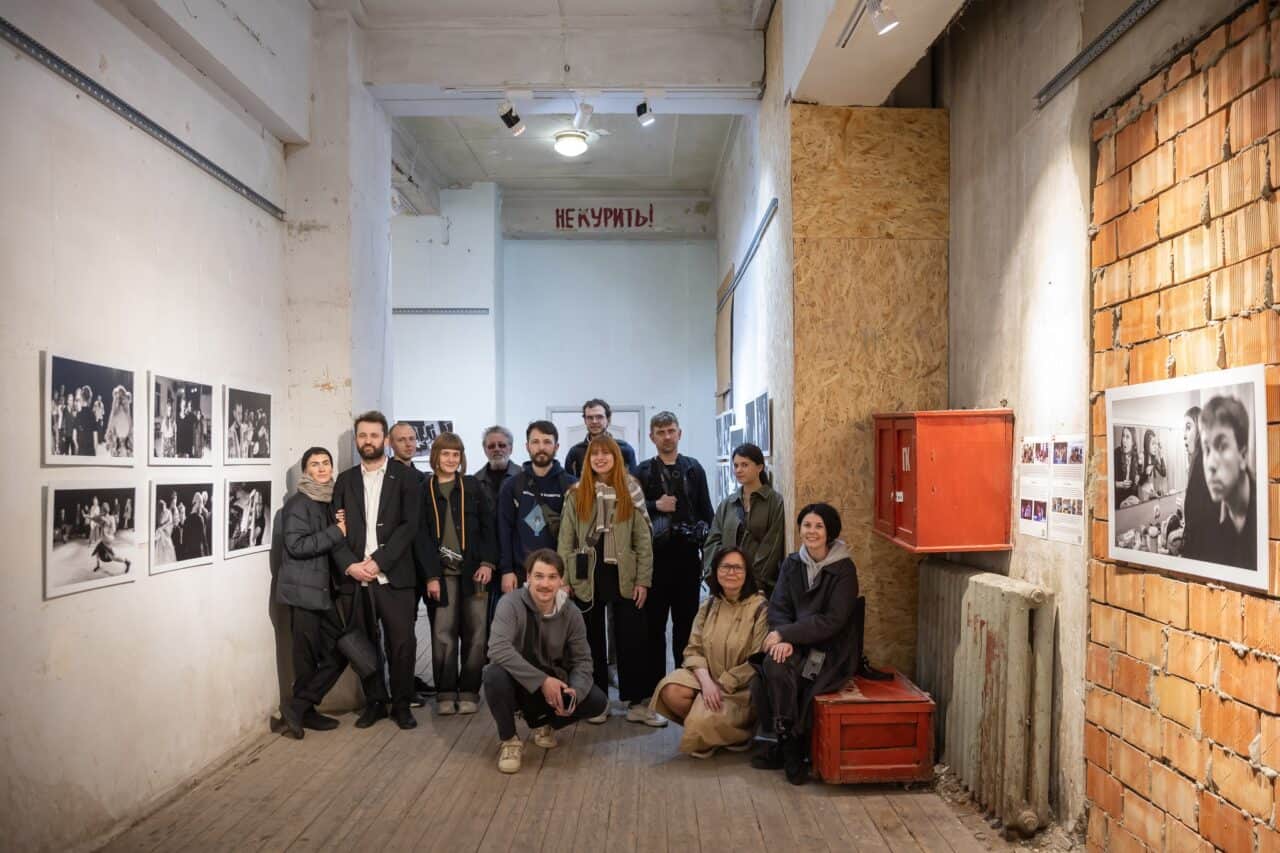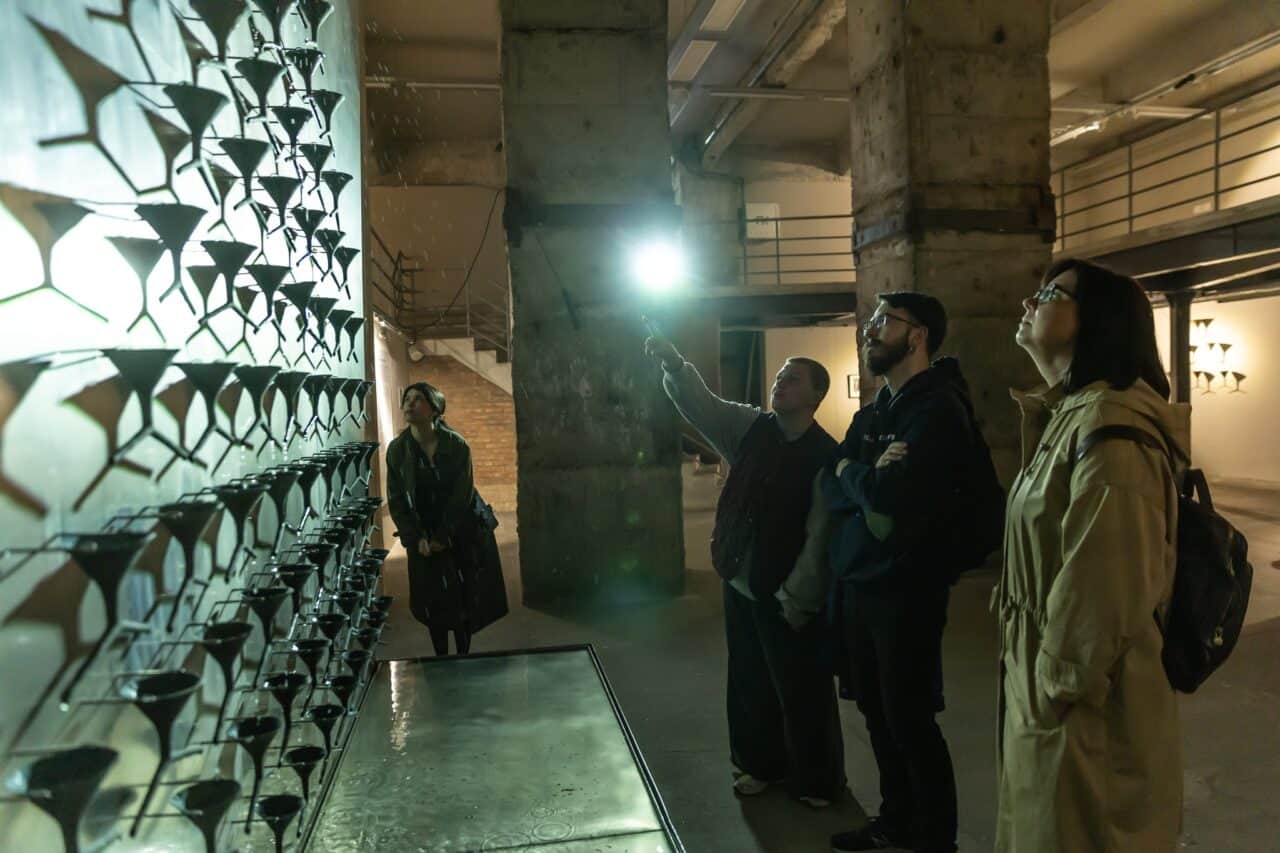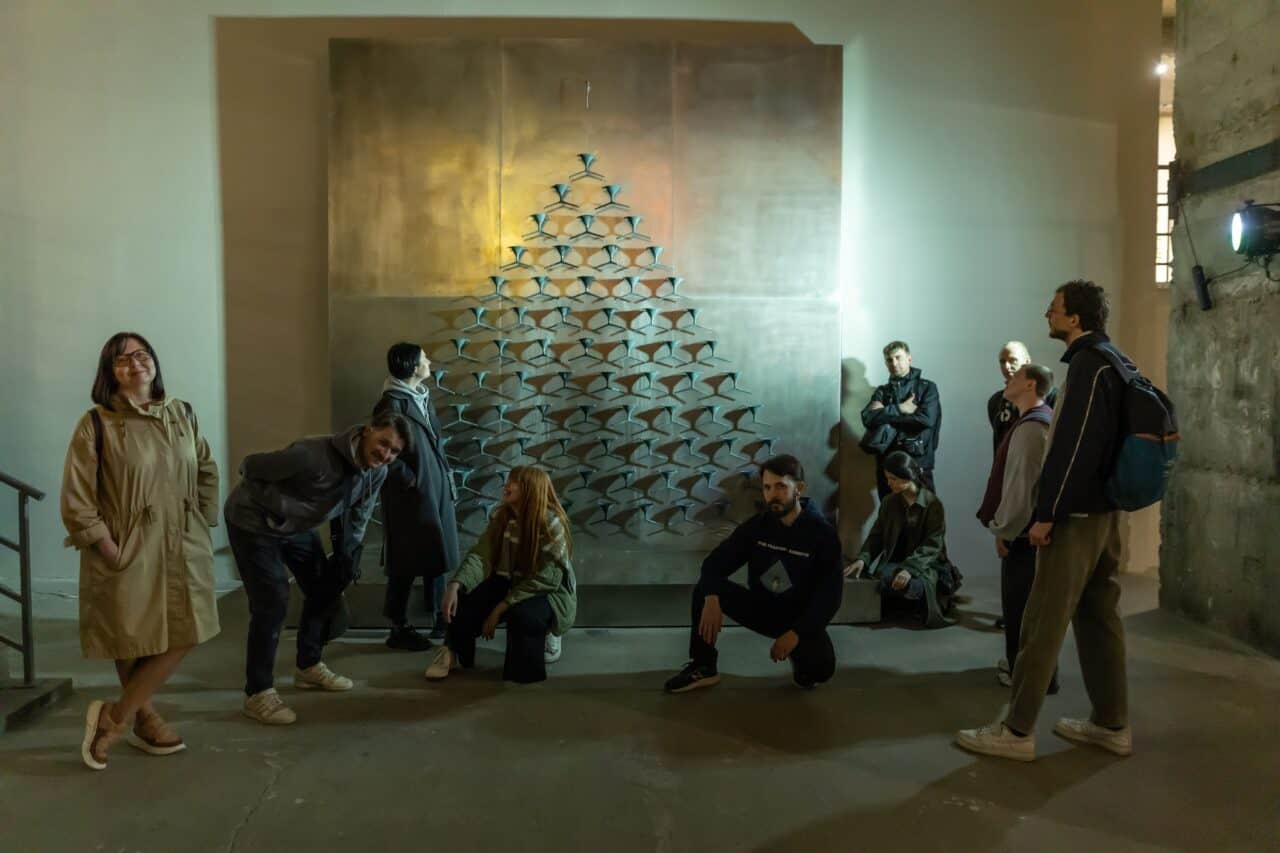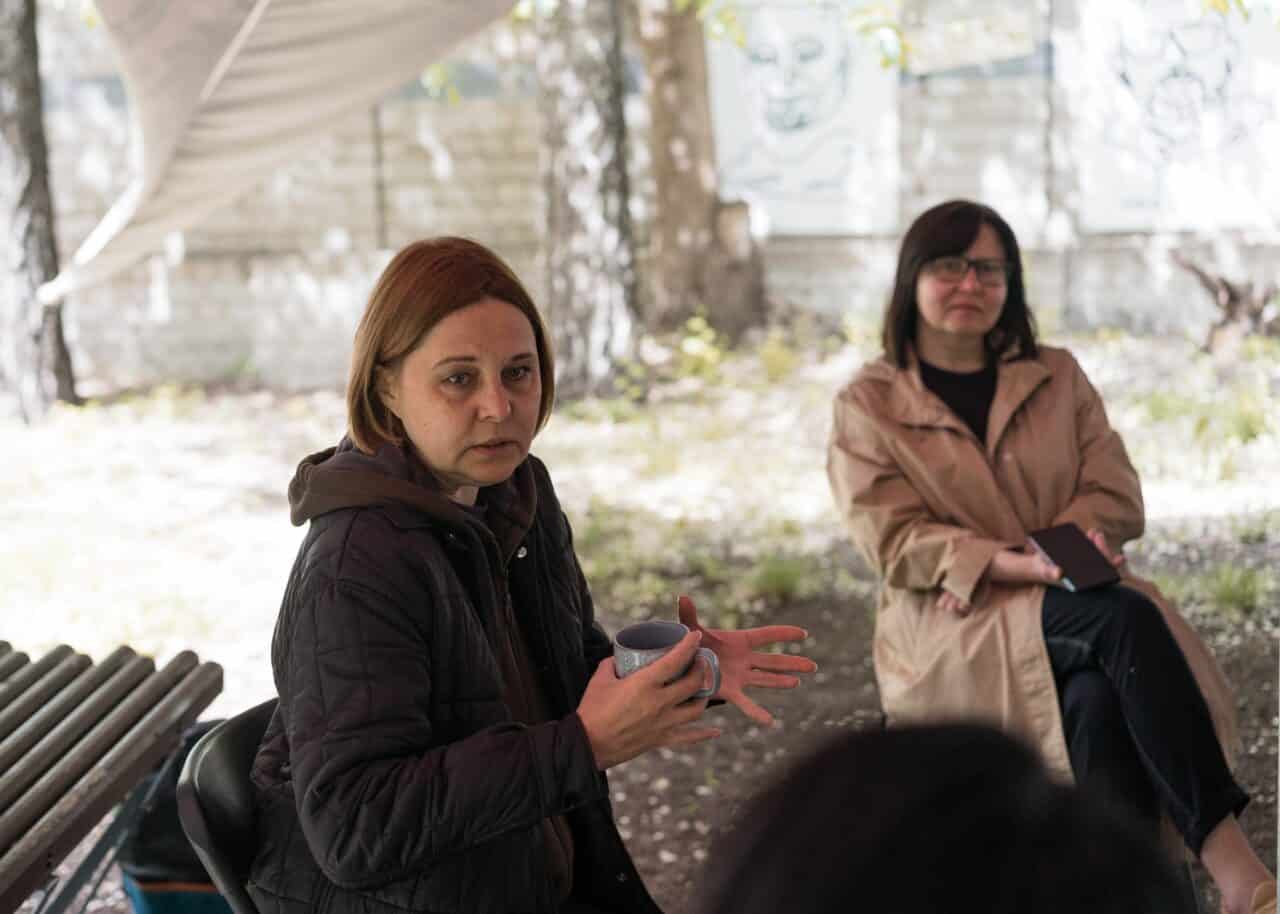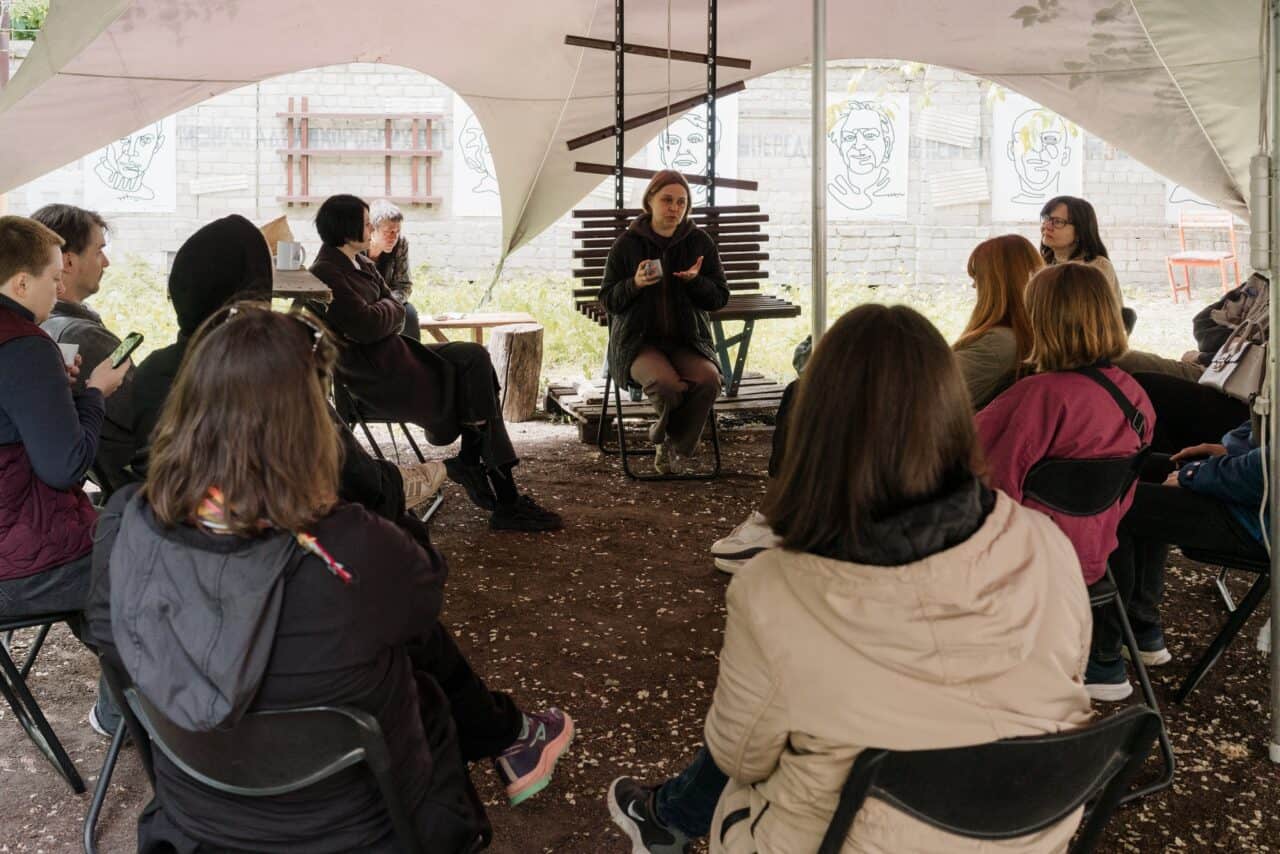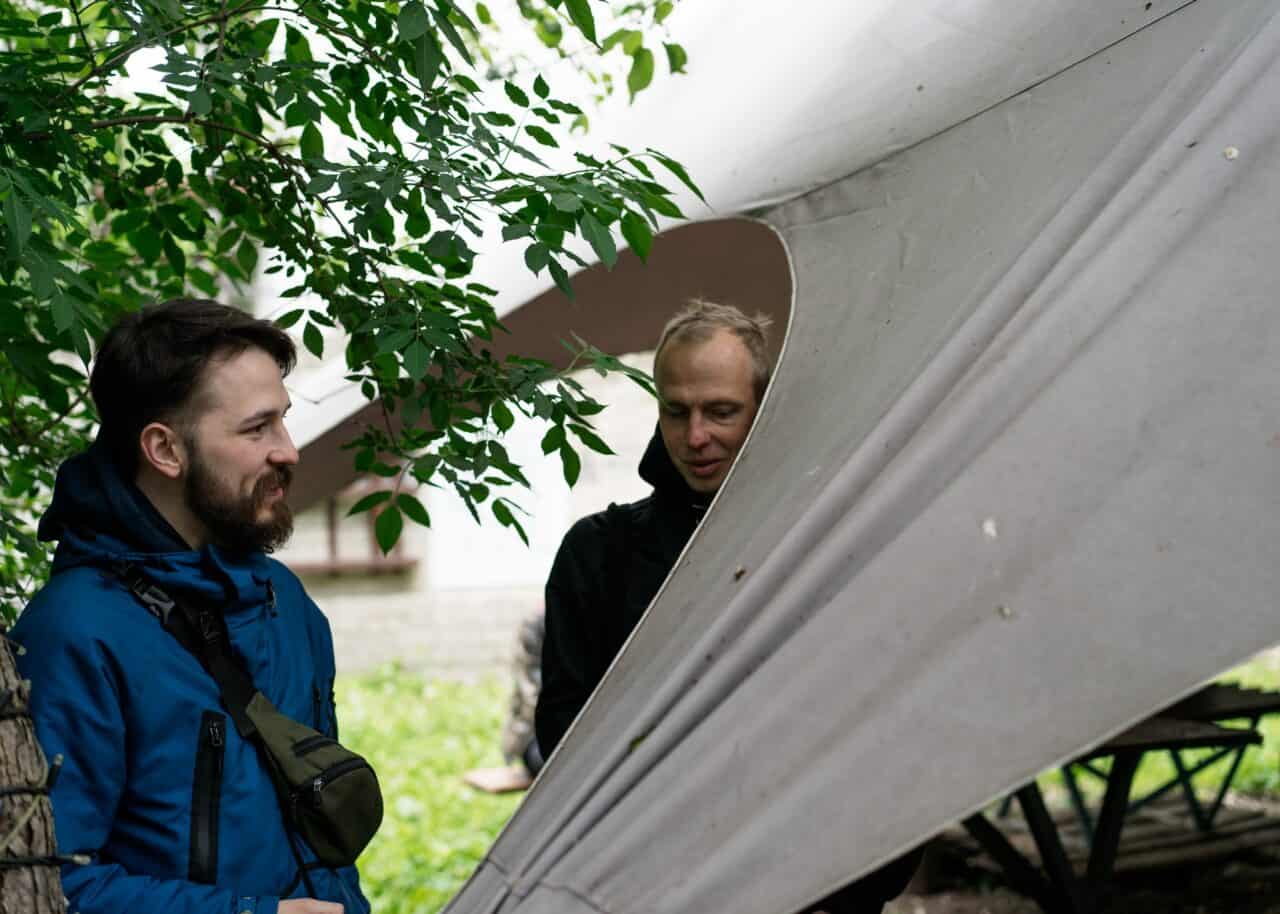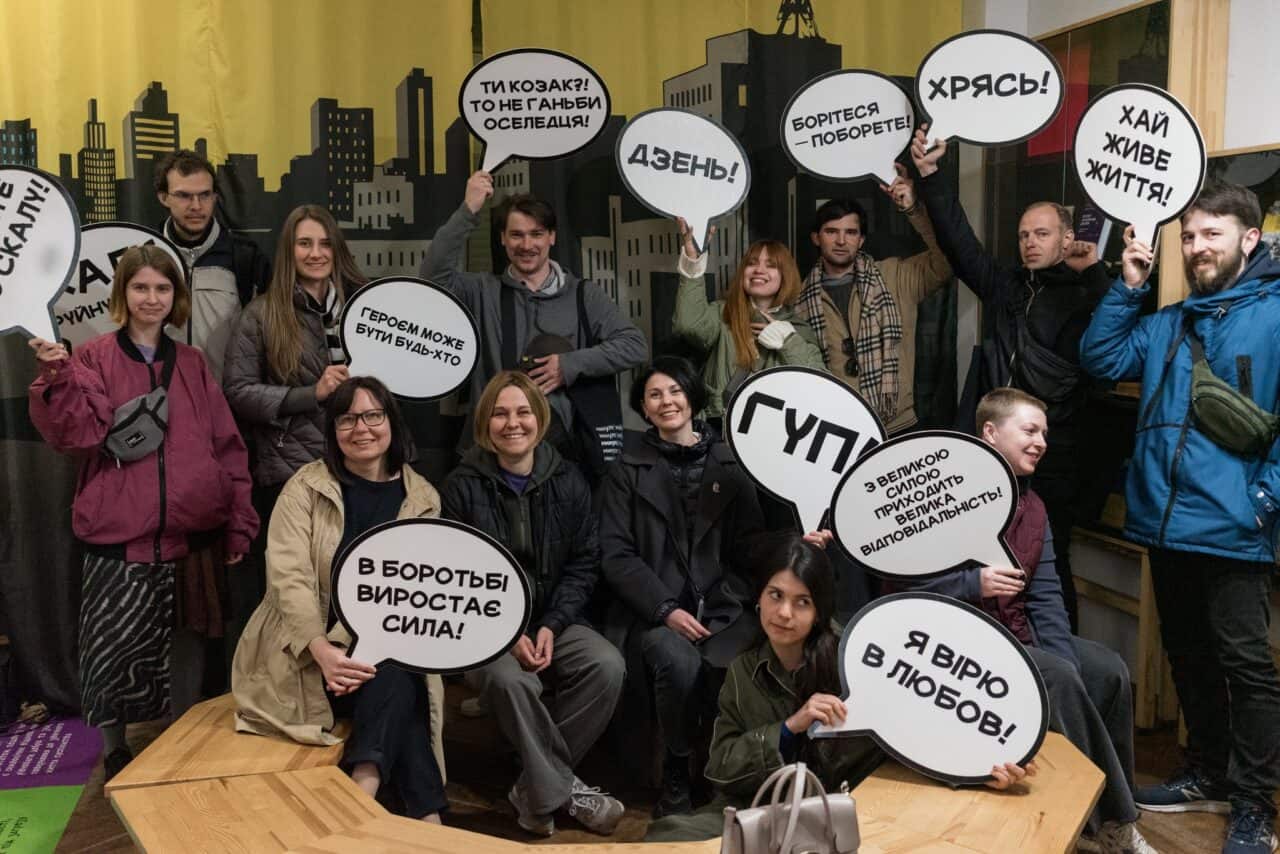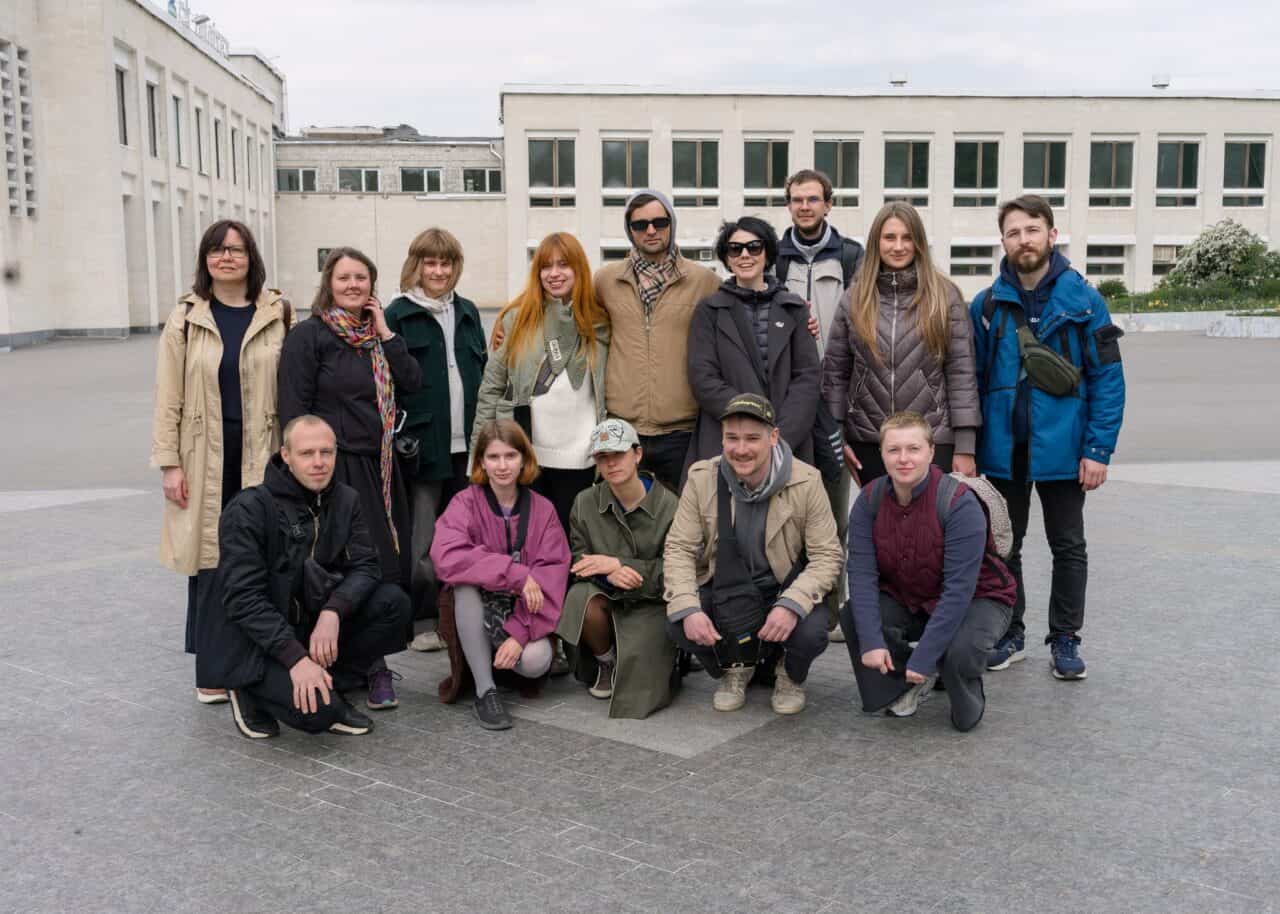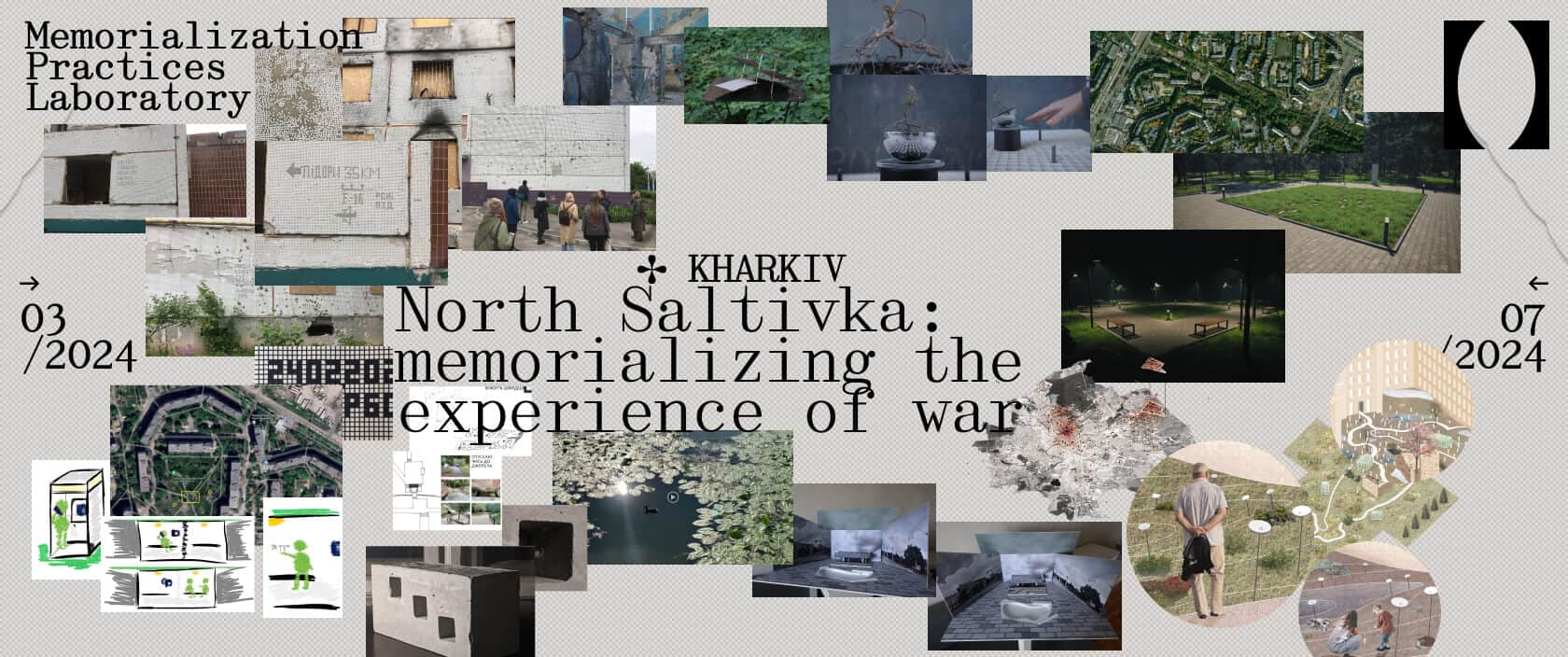
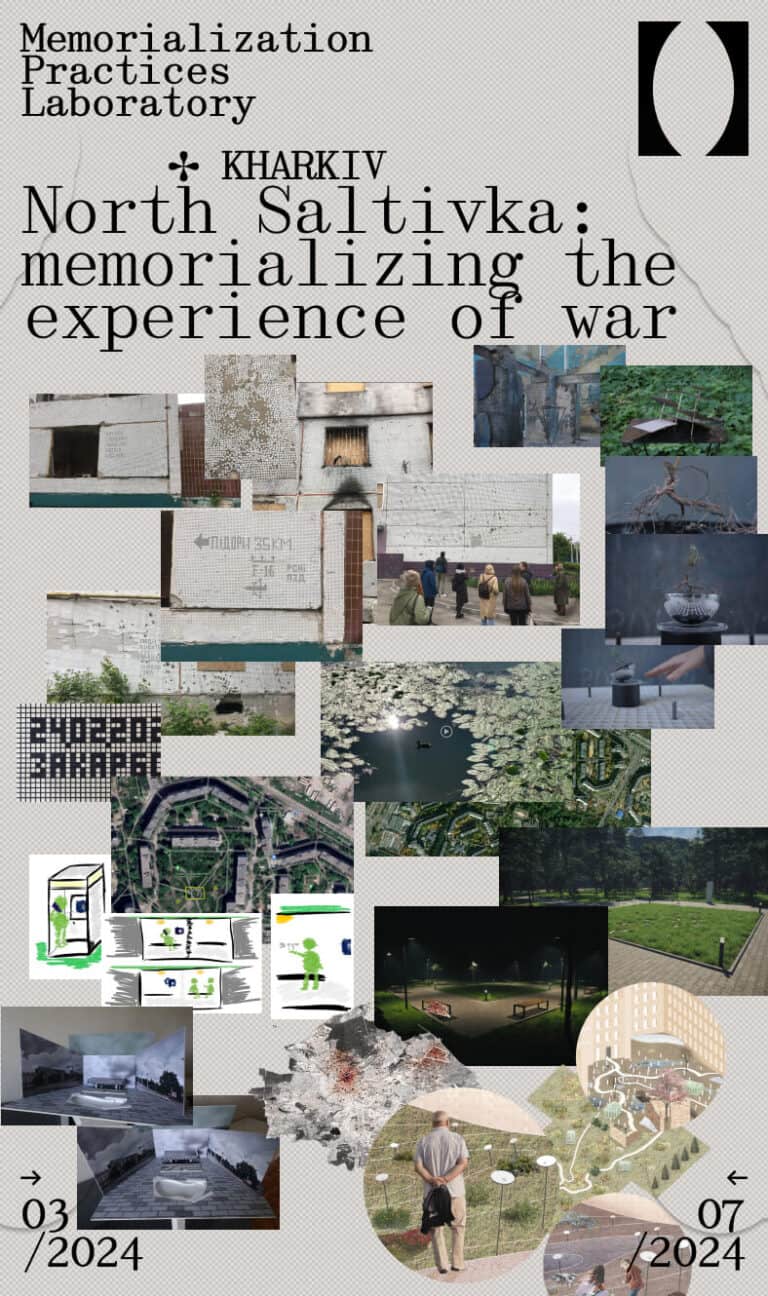
In 2024, a group of Ukrainian artists, sculptors, architects, and researchers came together to develop ideas for Kharkiv-based memorial projects to help locals work through their experience of the Russian invasion. The effort was a part of Memorialization Practices Lab, a learning and research project aiming to find a memorialization language for the Russian–Ukrainian War.
Before starting on their projects, the participants attended lectures and workshops, learned various approaches to working with collective memory, and went on memory site expeditions to talk with the local community and authorities.
Here, we present ideas and drafts rather than memorial designs ready for implementation. Still, each brings us one step closer to finding a new memorialization language for the Russian–Ukrainian War. Besides Kharkiv, the Memorialization Practices Lab participants developed cases for Odesa, Moshchun, and Chernihiv.
THE CASE
North Saltivka is a Kharkiv residential area that’s currently 30 kilometres from the front line and a constant target for Russian air strikes. Previously one of the most densely populated parts of the city, it is now a ghost town—around 70% of its buildings were damaged over the first year of hostilities alone. The attacks have never ceased since then, and the situation keeps worsening.
In March 2022, a Russian aerial bomb hit a block of flats at 82 Natalia Uzhvyi Street, destroying one of its sections. The place immediately became a destination for international delegation visits and floral tributes. The locals were understandably annoyed by this: they didn’t want to live in constant grief and felt the place was reduced to a dark tourism location or a political tool. They met the proposal to conserve the building as a memorial site with a decisive no—the people of Saltivka preferred to nurture life and restore everything they could.
The Memorialization Practices Lab expedition initially aimed to find a memorial language specifically for North Saltivka. However, its scope eventually broadened to include the entirety of Kharkiv, the city that lives on despite daily shelling.
CASE CURATOR
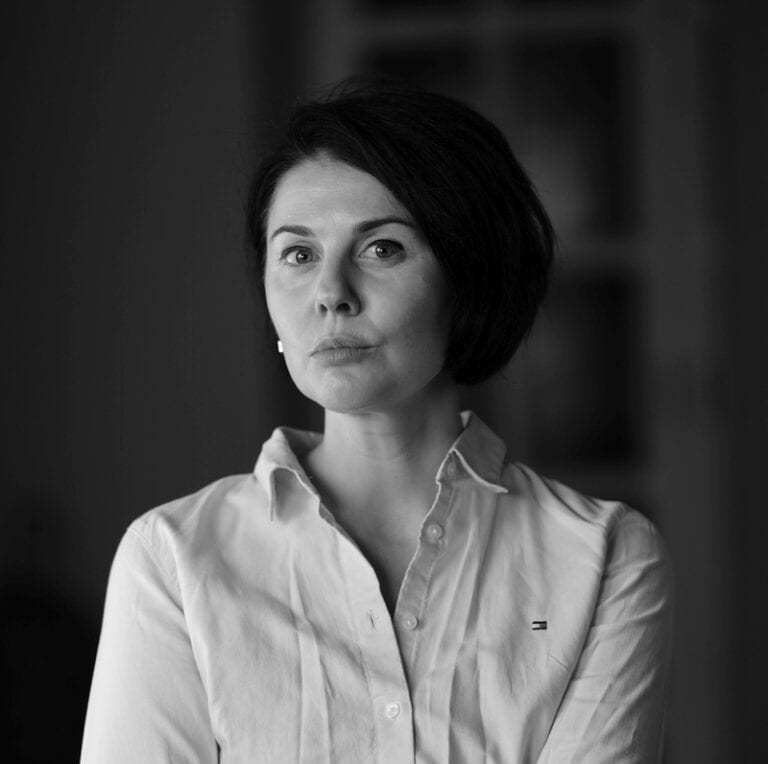
Kateryna Semenyuk
Curator, co-founder of the Past / Future / Art memory culture platform
AUTHORS
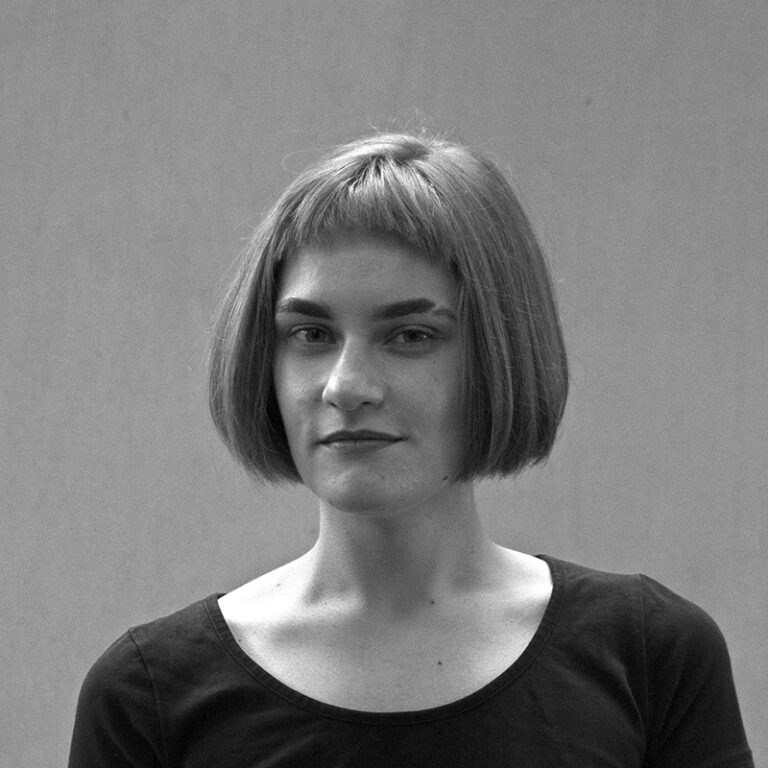
Alisa Aleksandrova
Architect
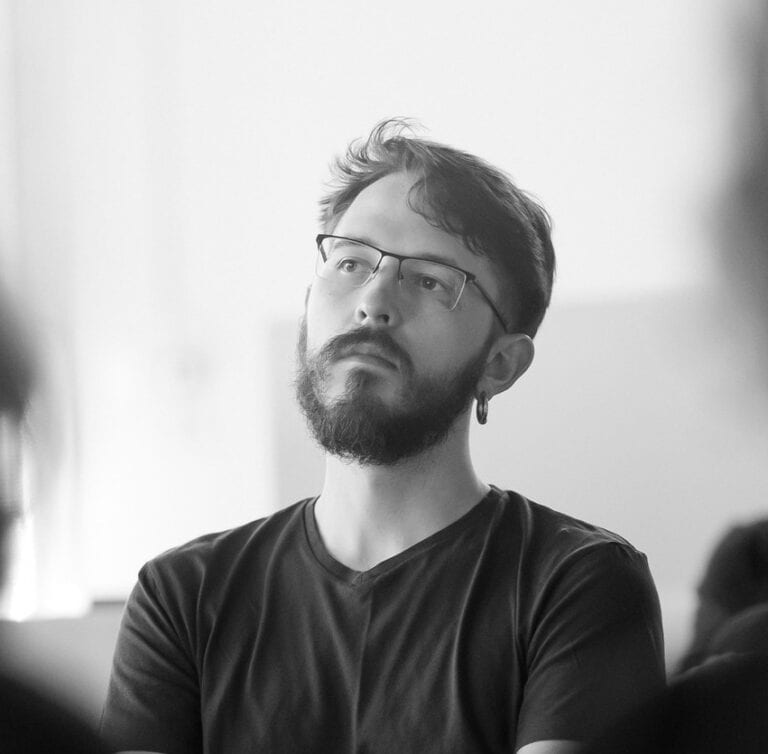
Serhii Hula
Artist, musician, 3D-artist
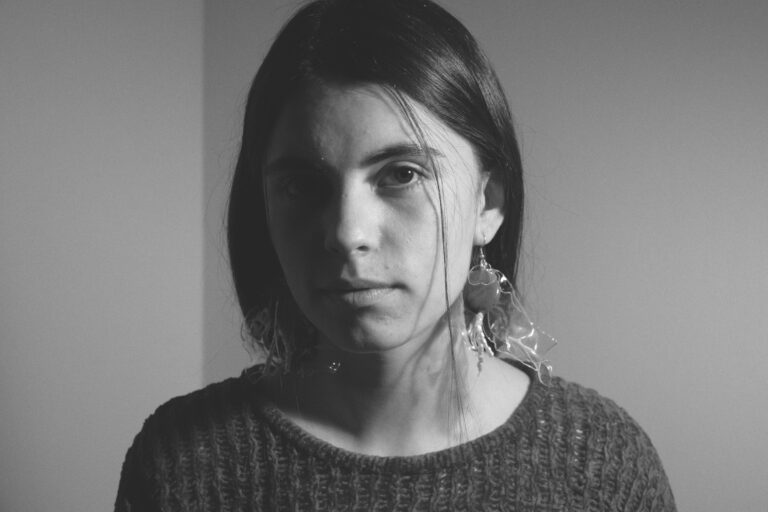
Diana Deryi
Artist, Memory Lab Ukraine member
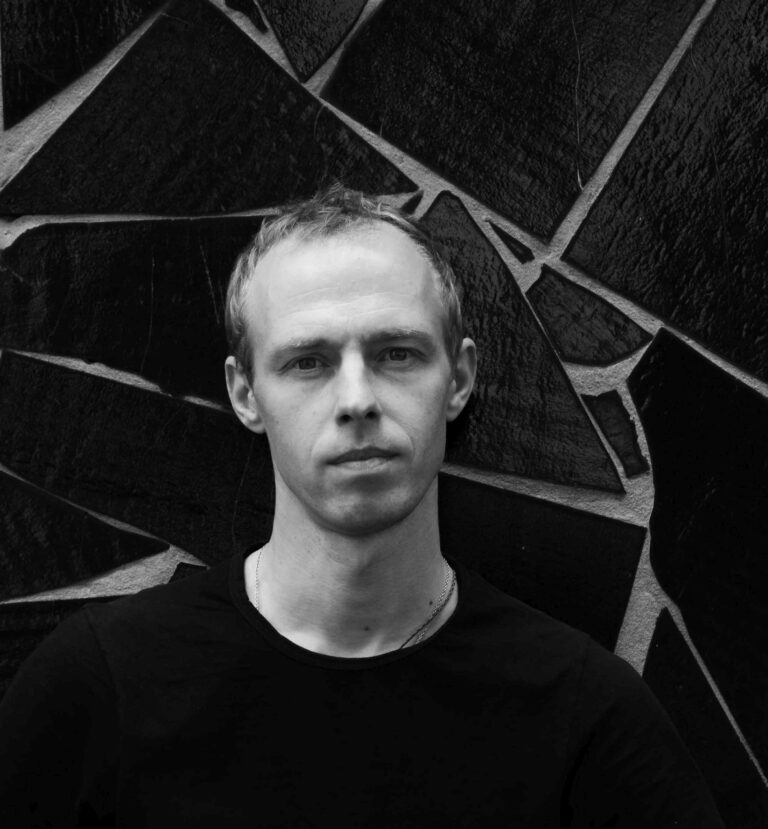
Taras Kovach
Artist
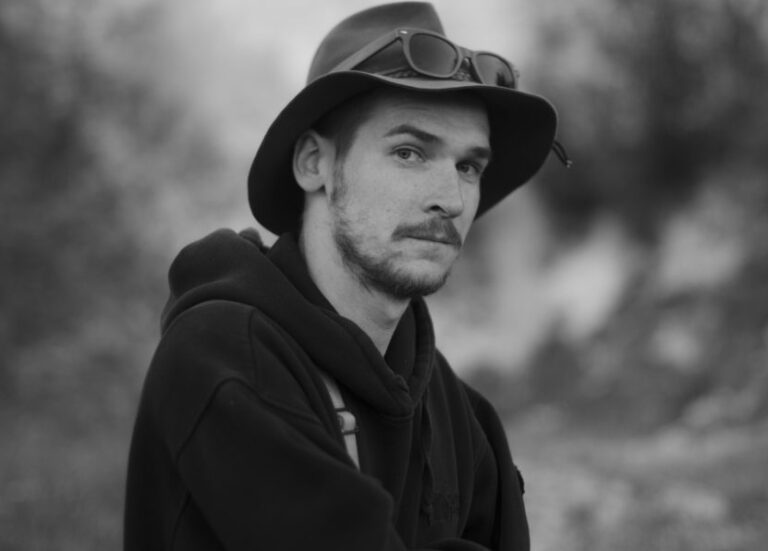
Vitalii Kokhan
Artist
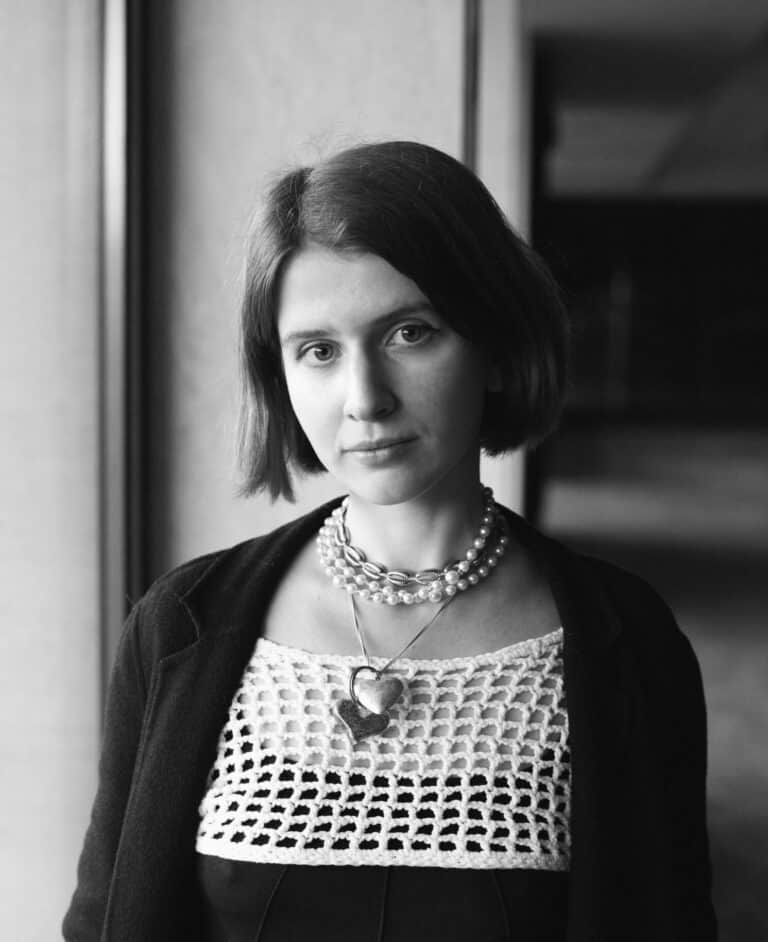
Karina Synytsia
Artist
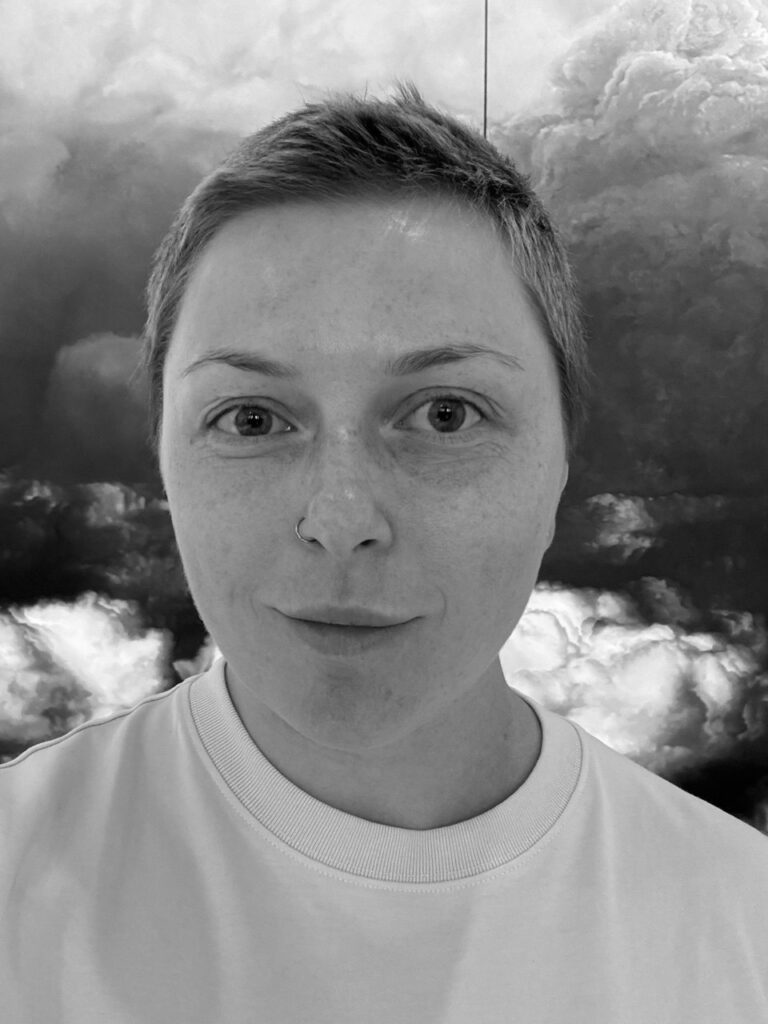
Anastasiia Khoroshevska
Product manager in IT
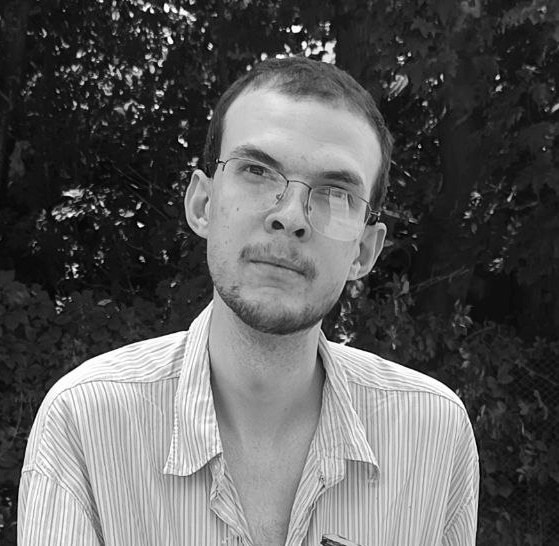
Nazar Tserna
Architect, Kharkiv School of Architecture student
PROJECTS
Alisa Aleksandrova
A Kharkiv That We Lost
A Kharkiv That’s Not a Place
Alisa reflects on Kharkiv as a city that’s being ruined. Some of its destroyed sites are more extensively featured in media and, therefore, better known, while others are not. As the losses often can’t be pinpointed in time or space, local memorials dedicated to specific events quickly lose relevance, and the actual scale of destruction is unwittingly understated.
Alisa proposes to set up a garden in the city’s heart—the ruins of the Kharkiv Oblast Council. The building was hit twice by the 2022 Russian airstrikes that also took many lives. She sees the gardens as a dynamic and inclusive form of memorialization. From Pavlo Makov’s thematic artworks to city crews heroically tending to flowerbeds under daily air strikes, the theme of gardens in Kharkiv is no accident.
Gardening is a therapeutic practice wherein remembering happens through caring for plants and co-creating the space. Anyone can change the landscape and make it their own, bringing a lump of earth, debris, plants, or seeds and gathering some plants for their home. The memorial will change from moment to moment as the city does.
SERHII HULA
No Name
Serhii’s idea highlights the importance of ordinary life and living through its loss. Many Ukrainians put their lives on halt after 24 February 2022 because they felt “now’s not the time”. You can’t turn back the time, but you still can move on.
Serhii envisions a space in the Manzhosiv Ravine, into which a dance frozen in time is etched as a scheme of waltz steps, with grass gradually growing between the footprints. This waltz without dancers is a metaphor for opportunities lost: the waltz that school graduates never danced, through which the enduring life sprouts.
Around the space runs a row of trimming with two pieces missing, symbolizing the “flow of time” broken by the war. The break erases the border between the visitor and “the waltz”, inviting them to dance, walk the path of what was lost, take it in, and carry on.
DIANA DERYI
Un)Stable Structures
Kharkiv is full of concrete, they say. Amid this sturdiness, however, Diana sees unstable structures that hold their shape and form the systems, supports, connections, and communities, retaining their time variation and structure despite external intervention. Through the objects she creates, the artist conveys her impressions from the expedition to Kharkiv. The war has changed the usual perception of things: what seemed unbreakable has turned out to be so vulnerable. “Previously, I might have called this flexibility, but now it feels like instability”, Diana comments.
One object has an outline reminiscent of panel houses shifted because of collapse. The other is a rooted young tree reinforced by wire that follows its outline and attaches to a water bowl. These objects are not mere models for more monumental forms. They are like that by design: delicate structures conveying the fragility of the order of things. Any push puts them into motion and makes them shake, yet they always return to their initial (un)stable state.
TARAS KOVACH
No Name
It’s usual for teenagers to use public spaces and objects (e.g., squares, Soviet-era monuments, museums, and community centres) to gather, go skateboarding, and learn new tricks. It’s a peculiar phenomenon commemoration-wise because historical context loses its sacred aspect in the eyes of youth, and old public spaces gradually gain new meaning. New personal experiences and contexts are being shaped in these spaces, with granite being the only Soviet thing left about them.
The Russian-Ukrainian War has deprived Kharkiv youth of many emotions and experiences: it’s dangerous to hold any festivals, raves, or concerts, and many families have left, losing their connections to friends and the cultural space. Taras proposes to convert the space in front of the Mykola Lysenko Kharkiv National Academic Opera and Ballet Theatre, where local skaters gather even during the war, into a full-fledged skatepark—a place of freedom, youth, unity, and all-conquering joy of life.
VITALII KOKHAN
Memorialization Through Street Art
Street art, especially its text-heavy variety, is typical of Kharkiv, Vitalii points out. One way of writing on the walls in the city is by breaking tiles off the wall panels, which reminded the author about drawing in quad-ruled notebooks and the patterns present in Ukrainian embroidery.
The desolate streets of Saltivka have hundreds of personal stories to tell, and the silent façades of damaged buildings would make an excellent canvas for temporary memorials. The author envisions this space brought to life by using text as usual in the city—with mischievous, informative, and upbeat messages. Avoiding pretentiousness and stereotypical symbols, like sunflowers, is crucial to preserving the street art style.
KARINA SYNYTSIA
Restoration and Remembrance Memorial
“Forest is like an ear, like the eyes that have seen much and have been through a lot. And if you care for it long enough, you can see an act of commemoration in this process. It lets us do away with the narratives and concepts that have long been prevalent in our land, especially nature-wise”, the artist explains the idea behind her video essay.
The pine forest in Kharkiv’s Zhuravliv Hydropark succumbed to disease and began withering in 2022—its old problems were aggravated by the war. The artificial forest planted in the Soviet time was doomed to its fate right from the start. Together with ecologists, Karina Synytsia envisions converting this forest into a living memorial to commemorate the resilience of nature and people during the Russian-Ukrainian War. Here, commemoration involves transforming the forest from a typical cultivated monoculture forest littered with the remains of military fortifications into a living space developing as a symbol of restoration and perpetual interaction between people and nature.
ANASTASIIA KHOROSHEVSKA
Please Talk
Anastasiia analyses grief as a process, emphasizing that “we are all alone in our grief”. The artist envisions a safe space created to help people live through personal loss and traumatic experiences. The project’s foundation is a simple shelter built in a green zone between the blocks of flats, complete with a folding privacy partition and a landline phone.
A concrete booth with a working landline phone will stand at each of the two exits from the shelter. All these shelters can be used for interactions, like having conversations with random people on the phone, thinking aloud about the most problematic things, or communing with the dead while pretending to have a phone call.
NAZAR TSERNA
Manzhosiv Ravine Spring
Nazar reflects on a memorial as the past fighting with the future. In his version of the future, he wants people to have an easier time living through the changes and, crucially, ingrain new, meaningful everyday habits in themselves.
The architect proposes to update the Manzhosiv Ravine Spring building in Saltivka, replacing a brick structure with three pipes at the base with a block with three wells of different depths. The variation in distance to the water imparts a ritualistic aspect. Some would say the water in the deeper well tastes the best, and others would pick randomly. Yet others would hardly notice any difference at all. Nazar feels it lets one make peace with the unknown and put more faith in the world.
MILESTONES
Mid-March–May 2024
The Lab’s learning section
April 2024
Selection of the participants for the Lab’s hands-on practice section
12–14 May 2024
A research expedition to Kharkiv
1 June–10 July 2024
Development of ideas, discussions with the curator, follow-up revision
20 July 2024
Presentation of project ideas
Expedition to the Russian–Ukrainian War commemoration sites in Kharkiv, 12–14 May 2024
Photos by Dmytro Prutkin and Oleksandr Osipov
ORGANIZERS
Past / Future / Art is a memory culture platform established by the Cultural Practices NGO in Odesa, Ukraine, in 2019. It focuses on memorial, research, and art projects and develops strategies for commemorating significant phenomena of Ukrainian history, initiating public discussions to engage broader audiences in working through the past.
Museum of Contemporary Art NGO (MOCA NGO) is a non-profit organization aimed at creating a new type of professional contemporary art museum institution in Ukraine, serving as a crucial element in the advancement of the art ecosystem. Founded in 2020, the organization brings together and engages artists, cultural workers, and experts who work with contemporary art in Ukraine.
The Memorialization Practices Lab is supported by the Partnership Fund for a Resilient Ukraine (PFRU), funded by aid from the governments of Canada, Estonia, Finland, Netherlands, Sweden, Switzerland, the United Kingdom, and the United States. The Fund unites the Government of Ukraine with its closest international government partners to deliver projects in primarily liberated and frontline communities that strengthen Ukraine’s resilience against Russia’s war of aggression. PFRU aims to strengthen the Ukrainian government’s capacity and resilience to deliver essential support to local communities in collaboration with civil society, media, and the private sector.
